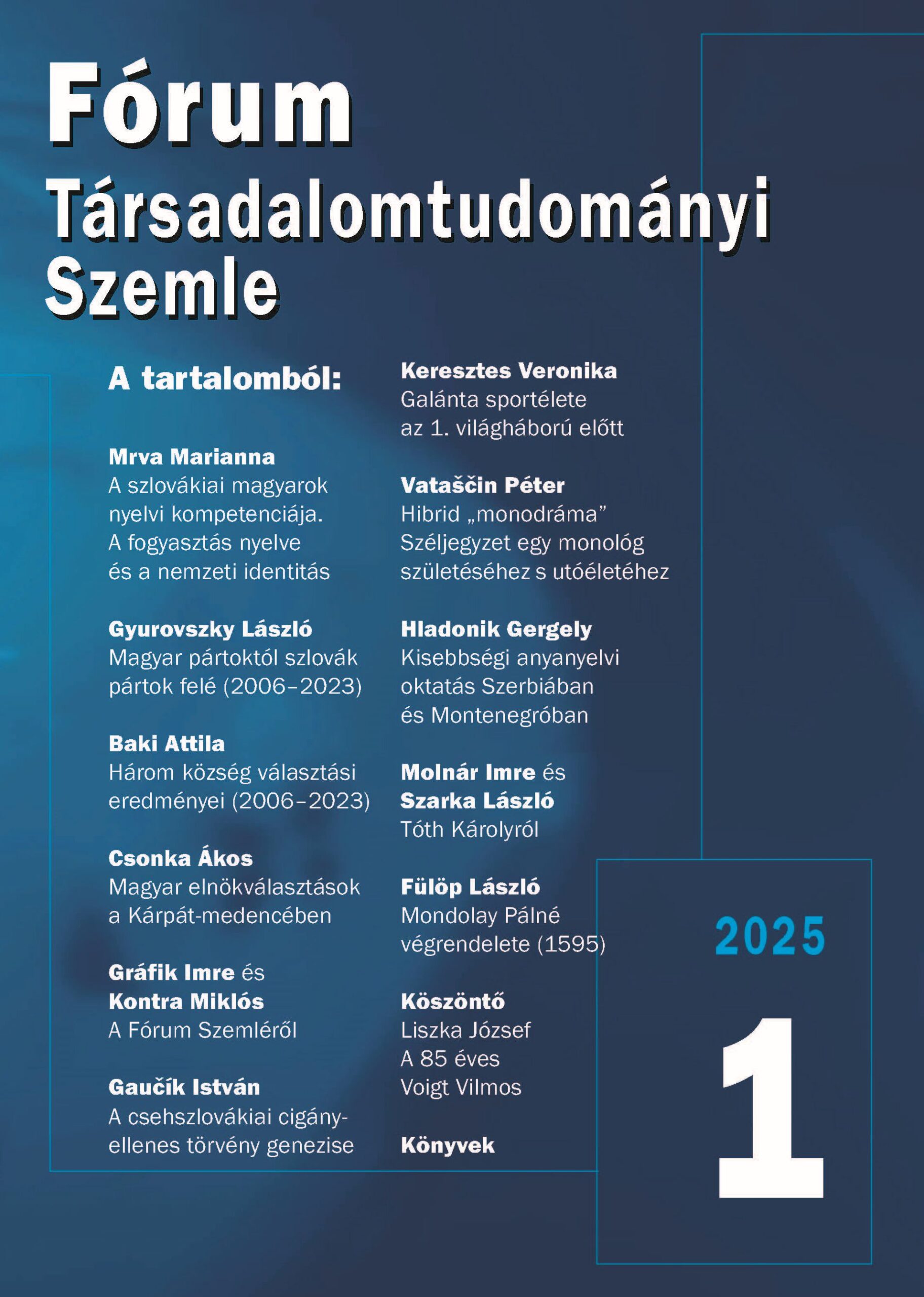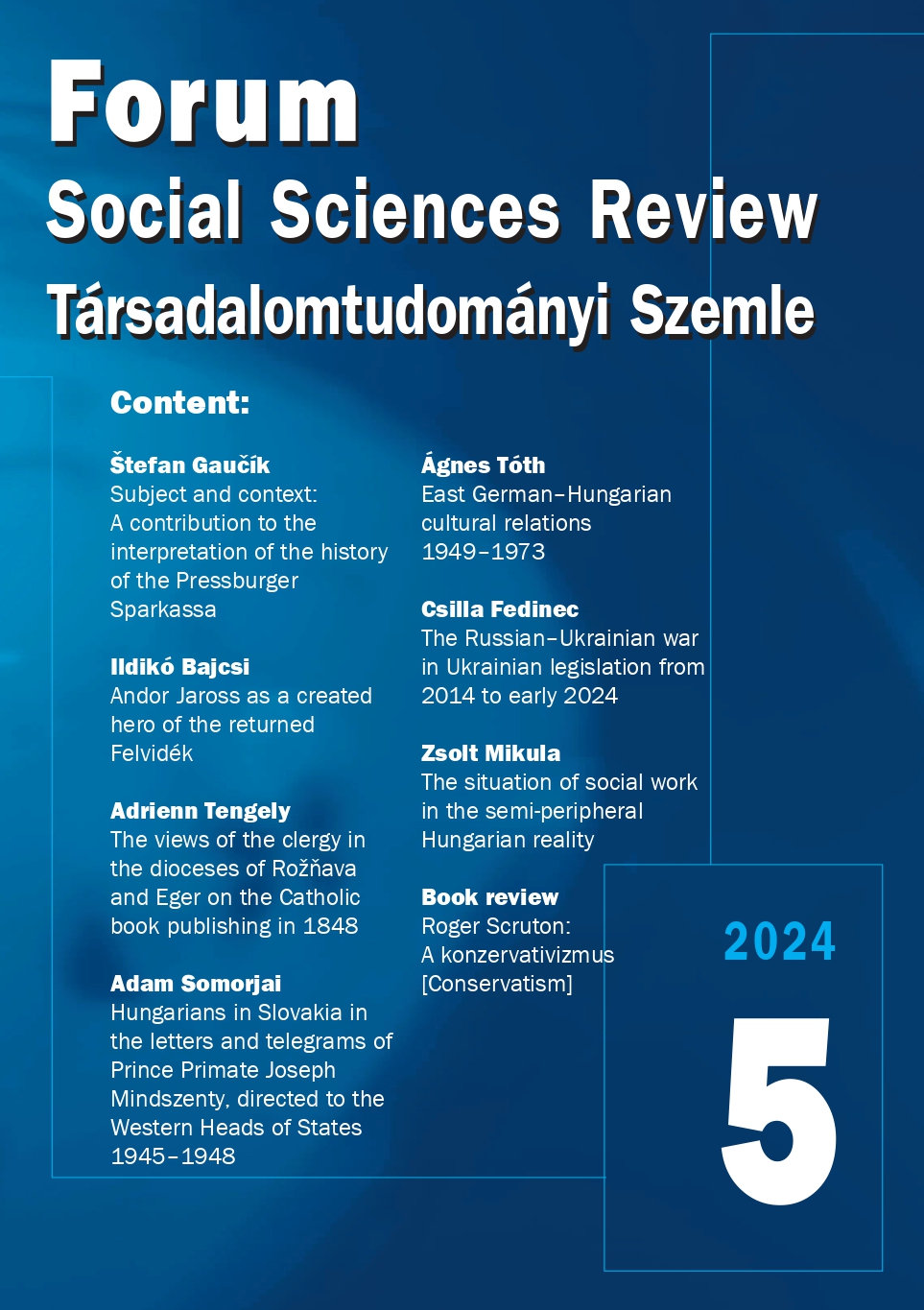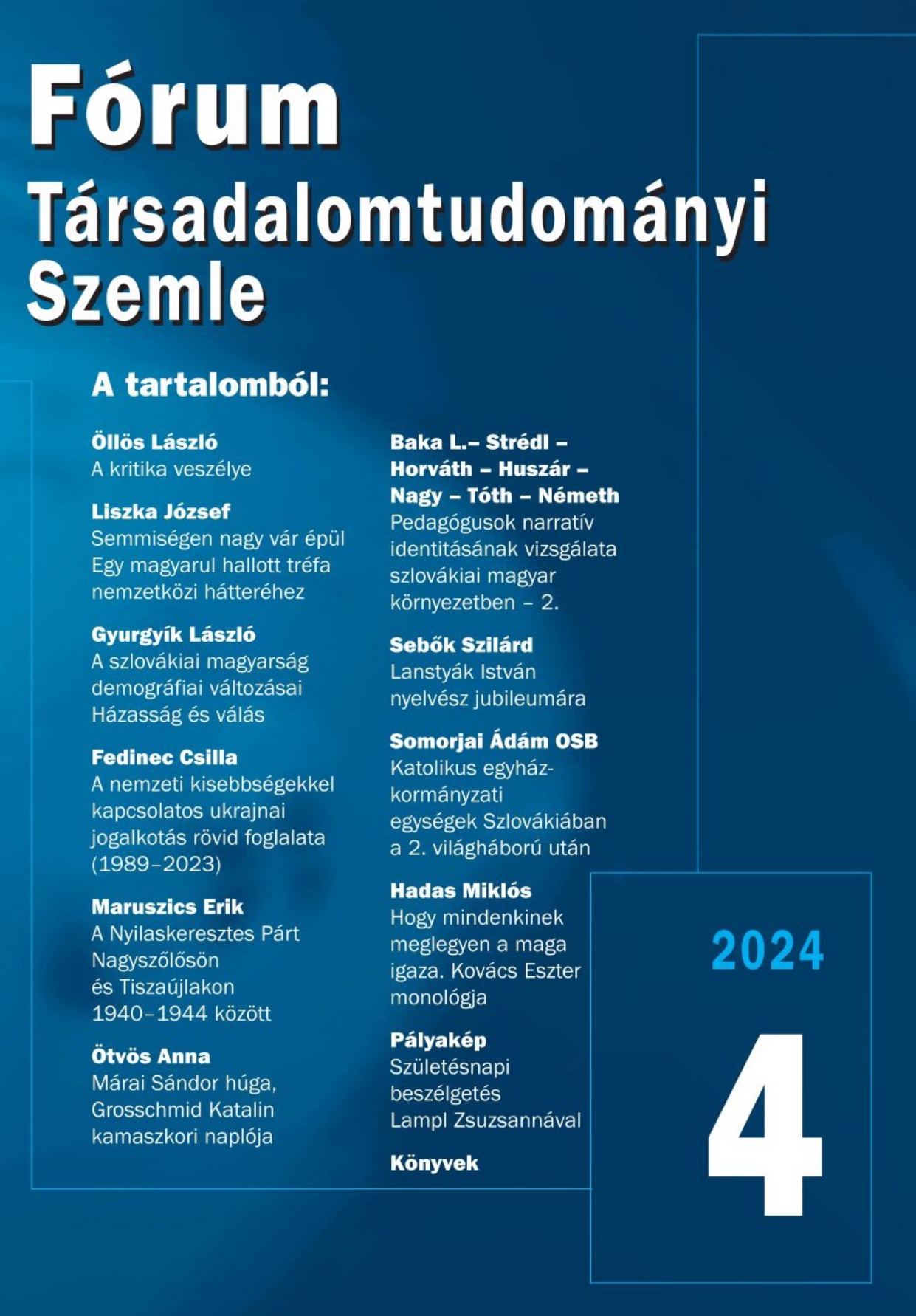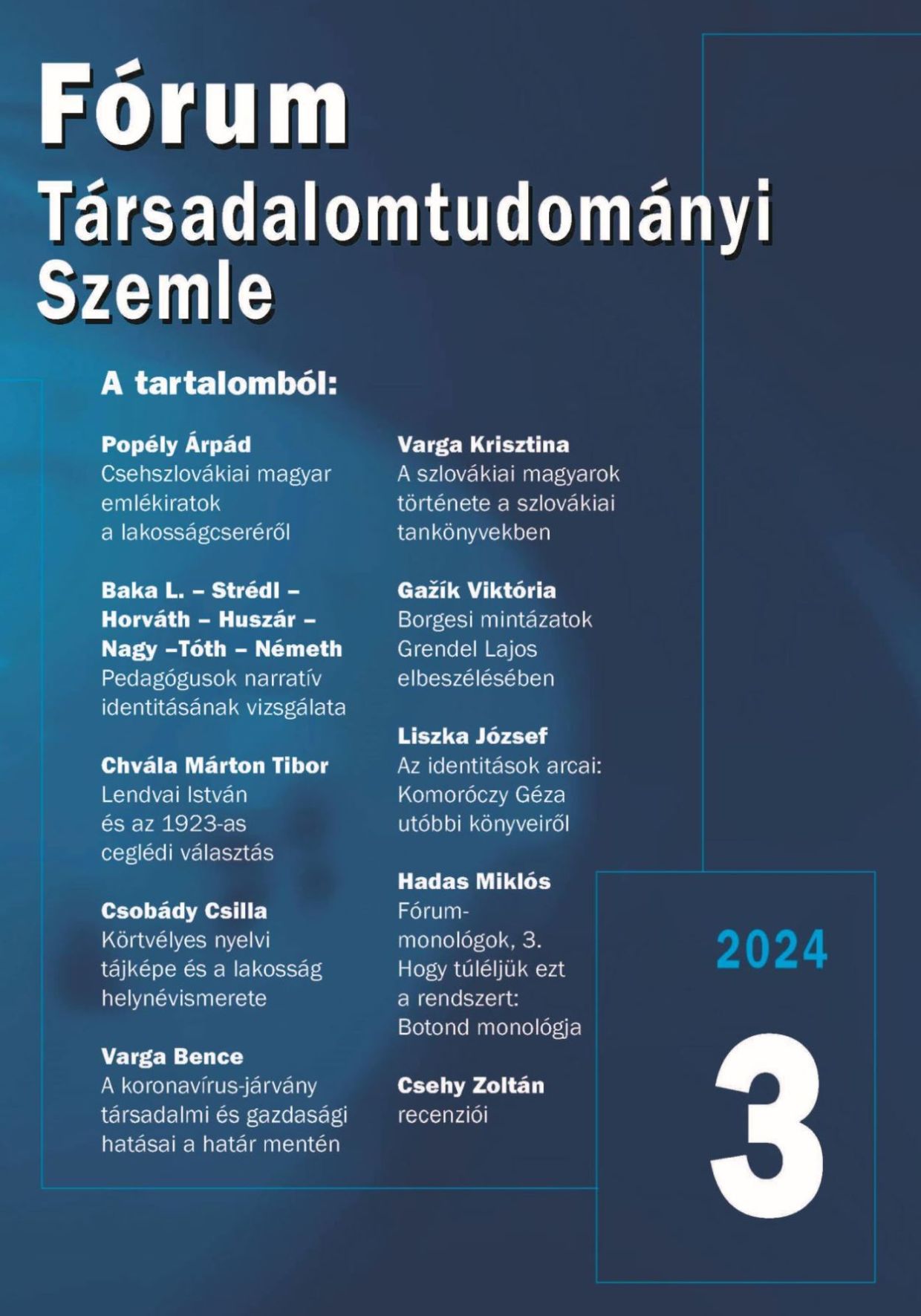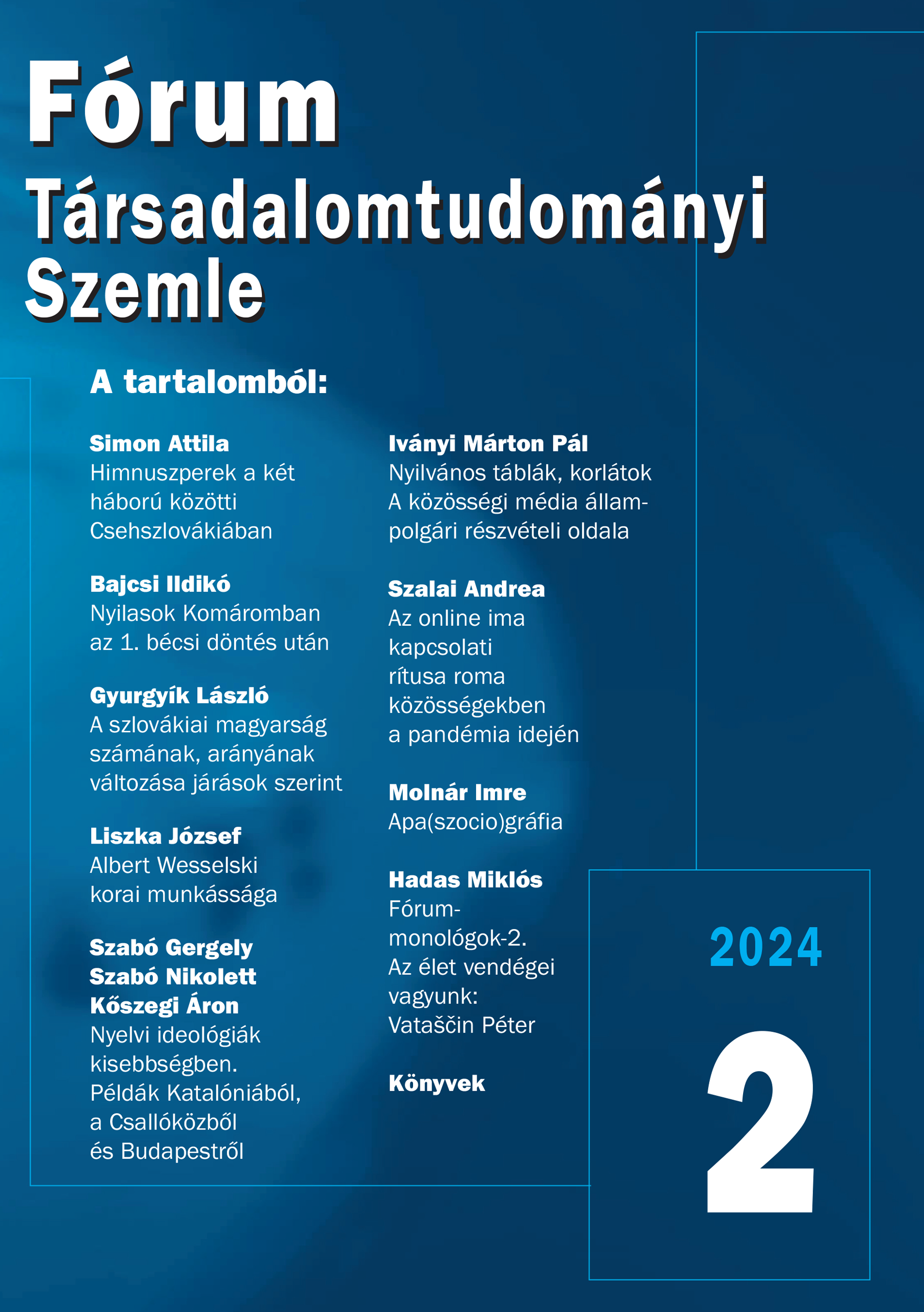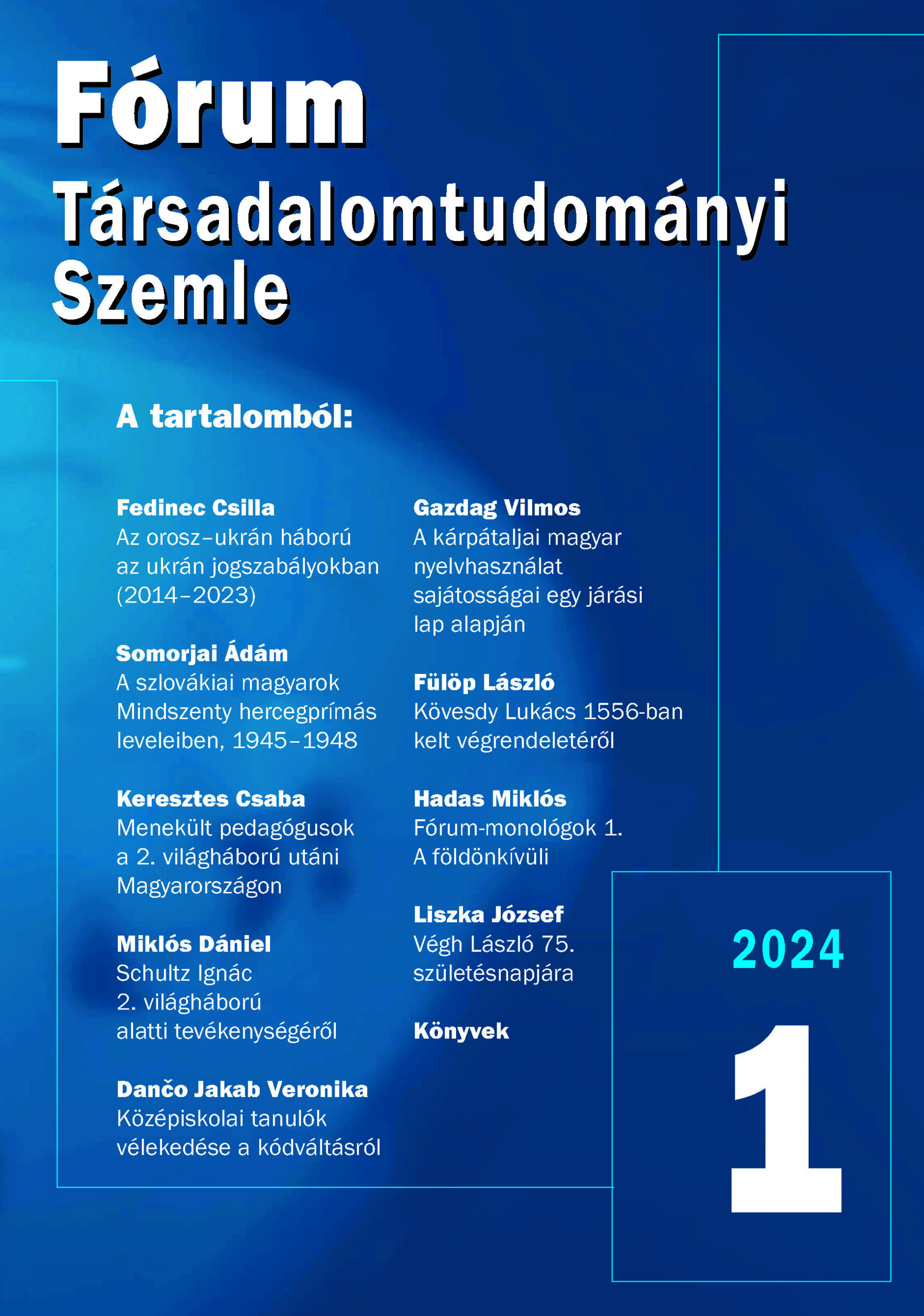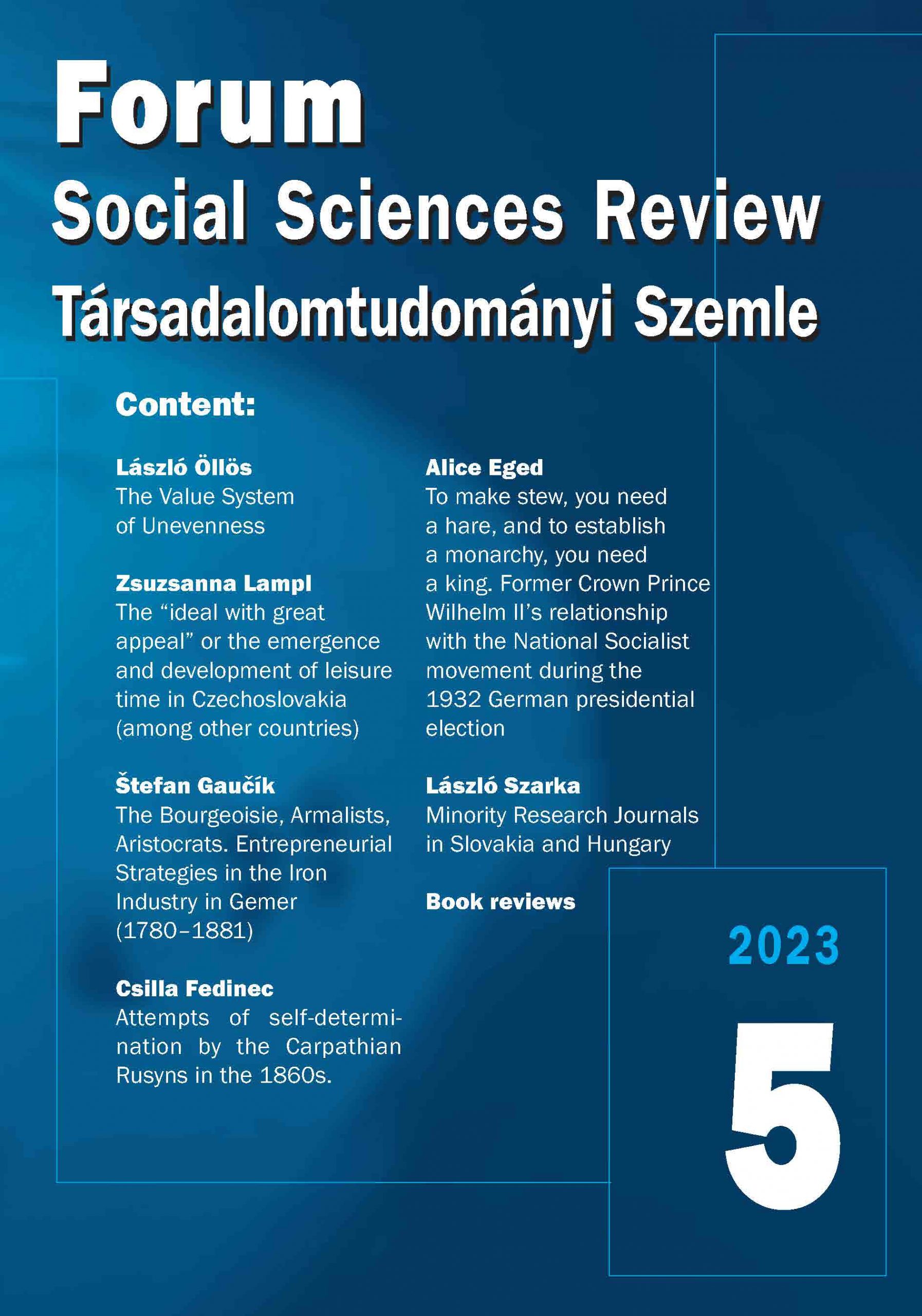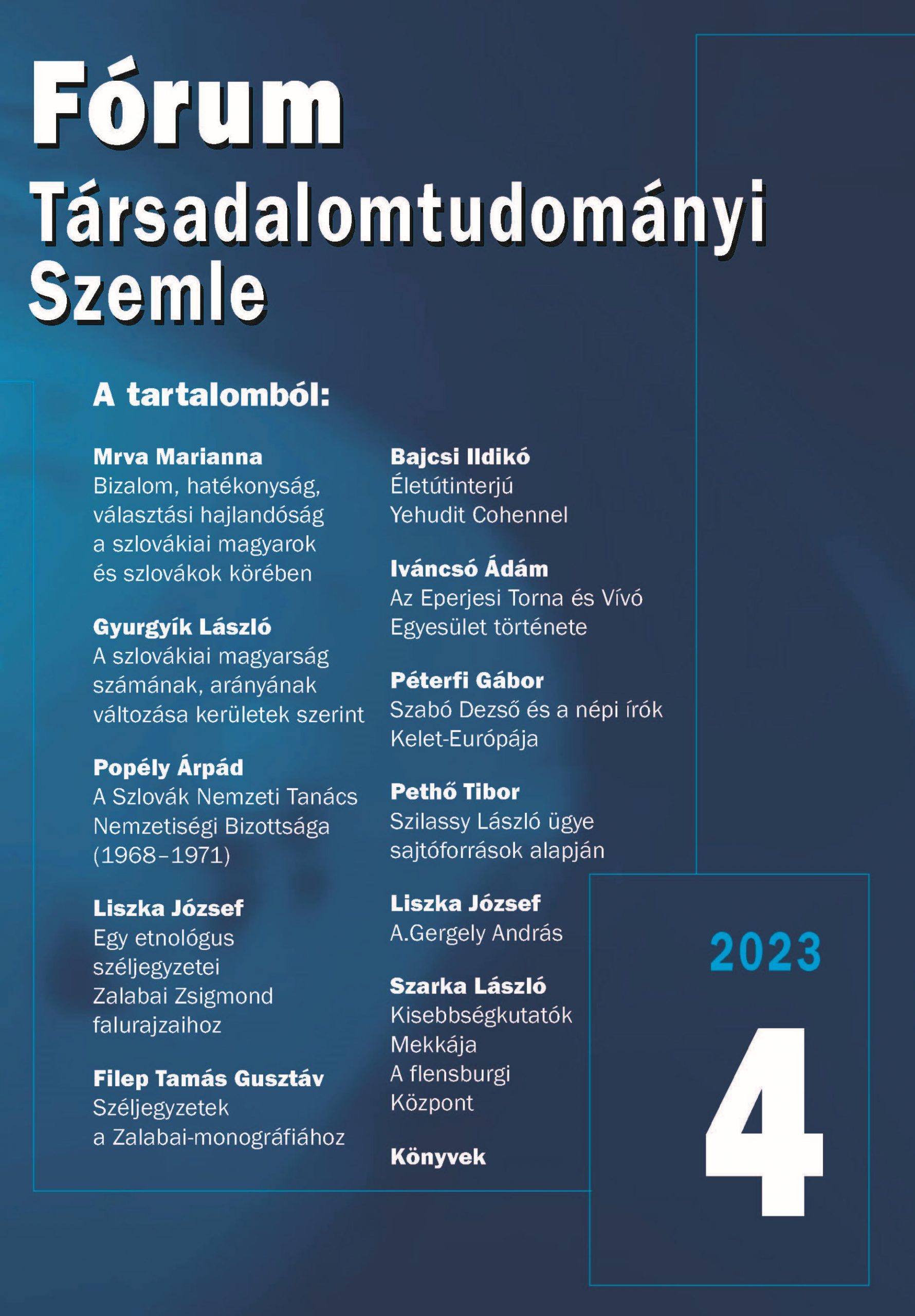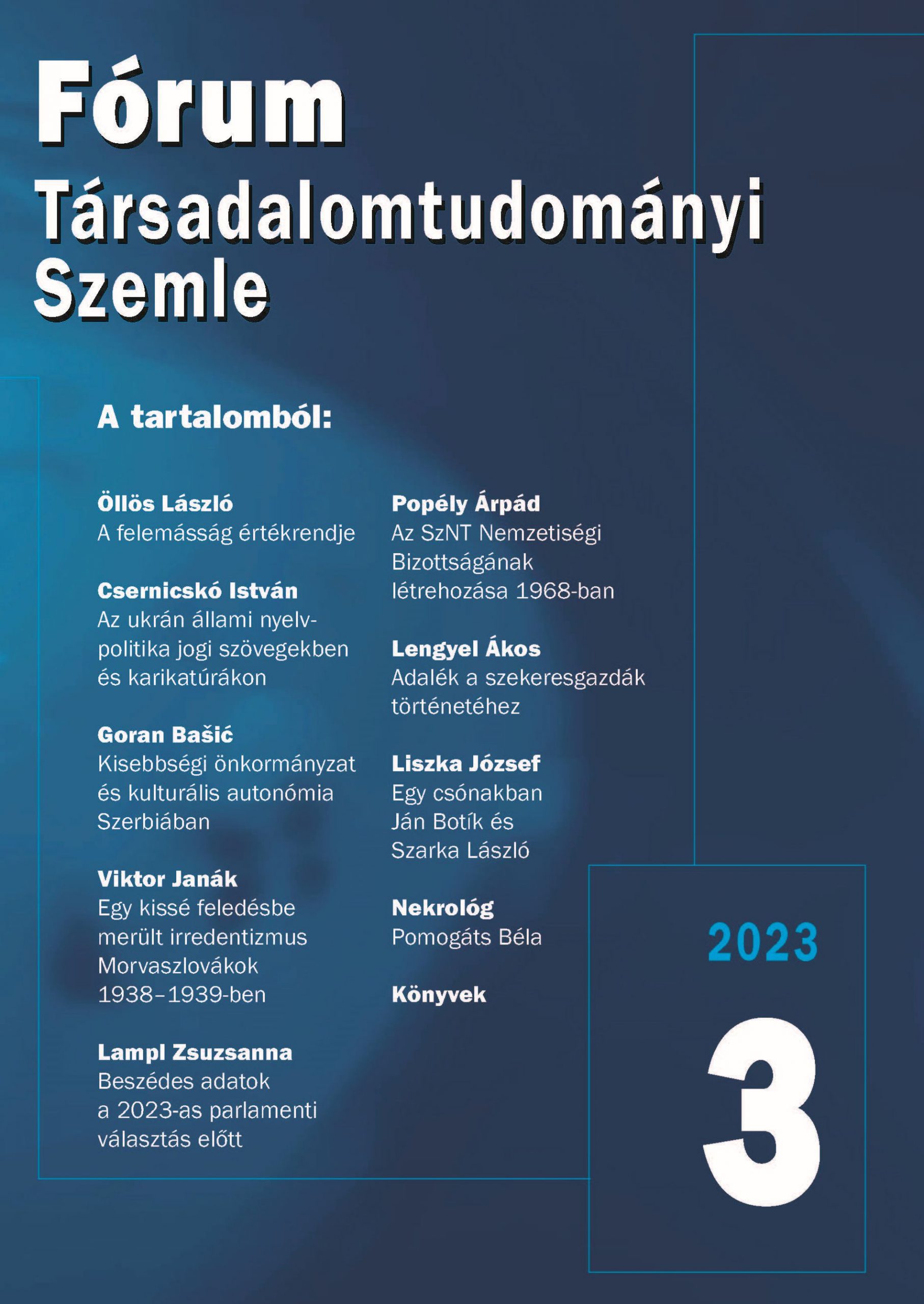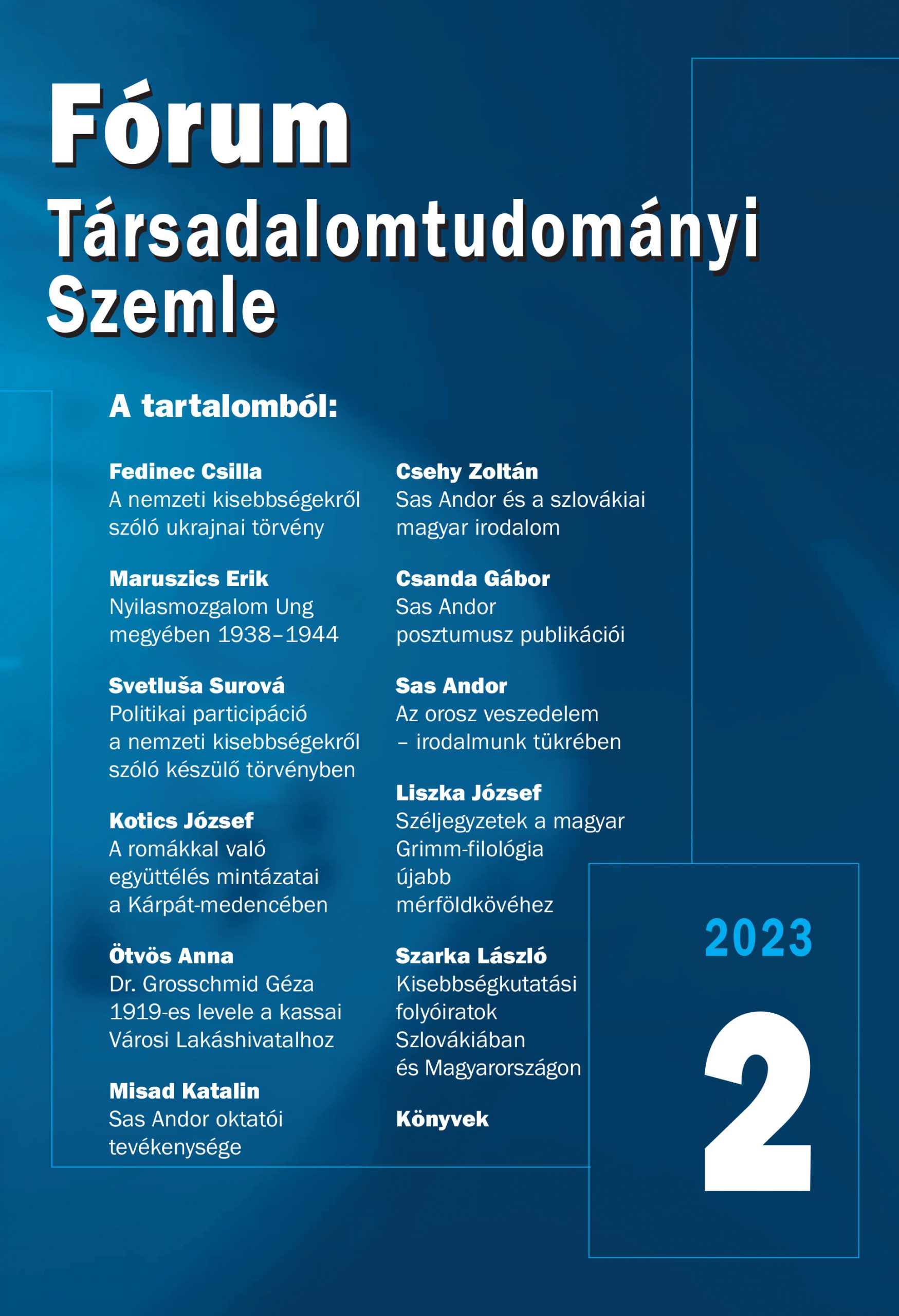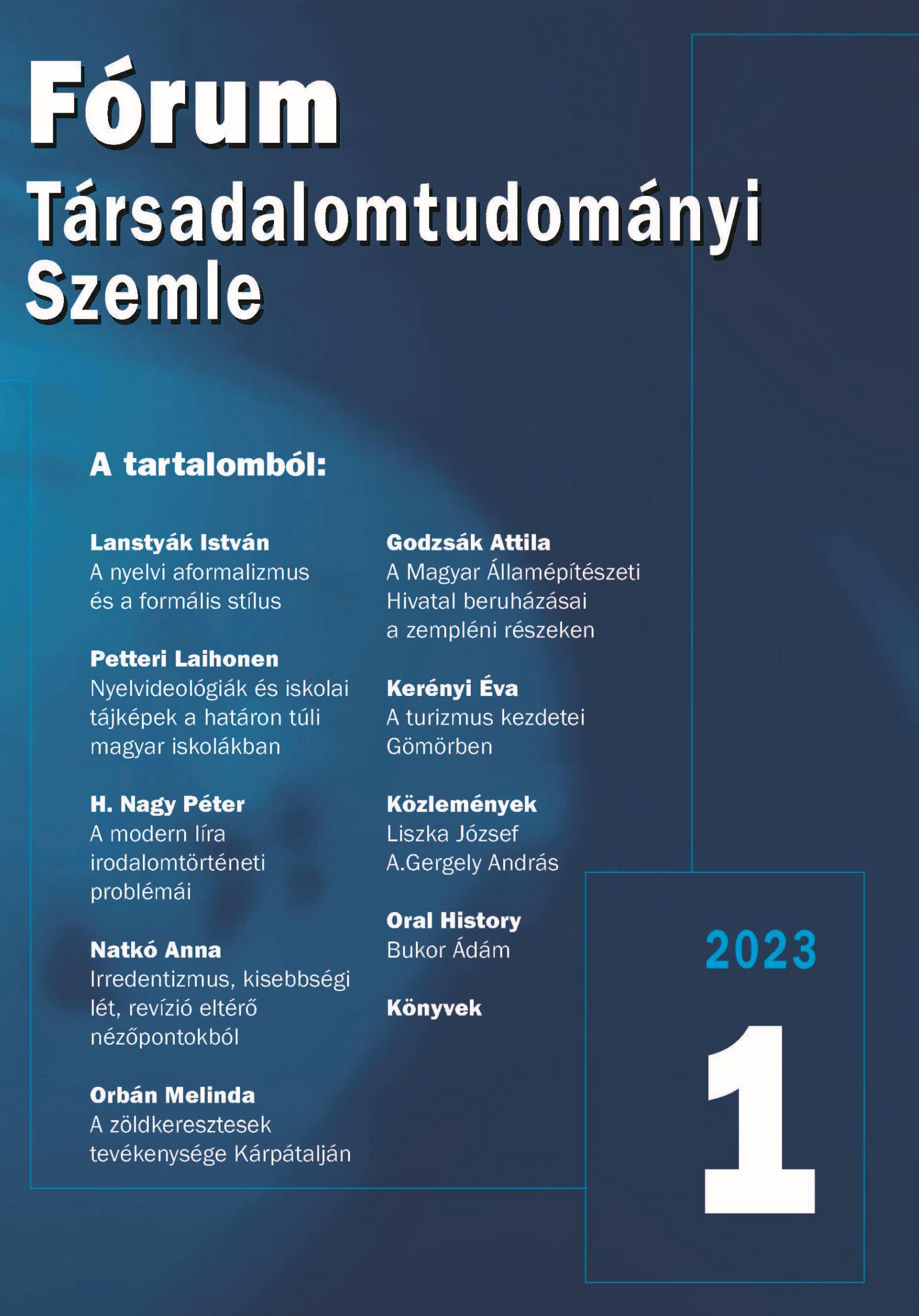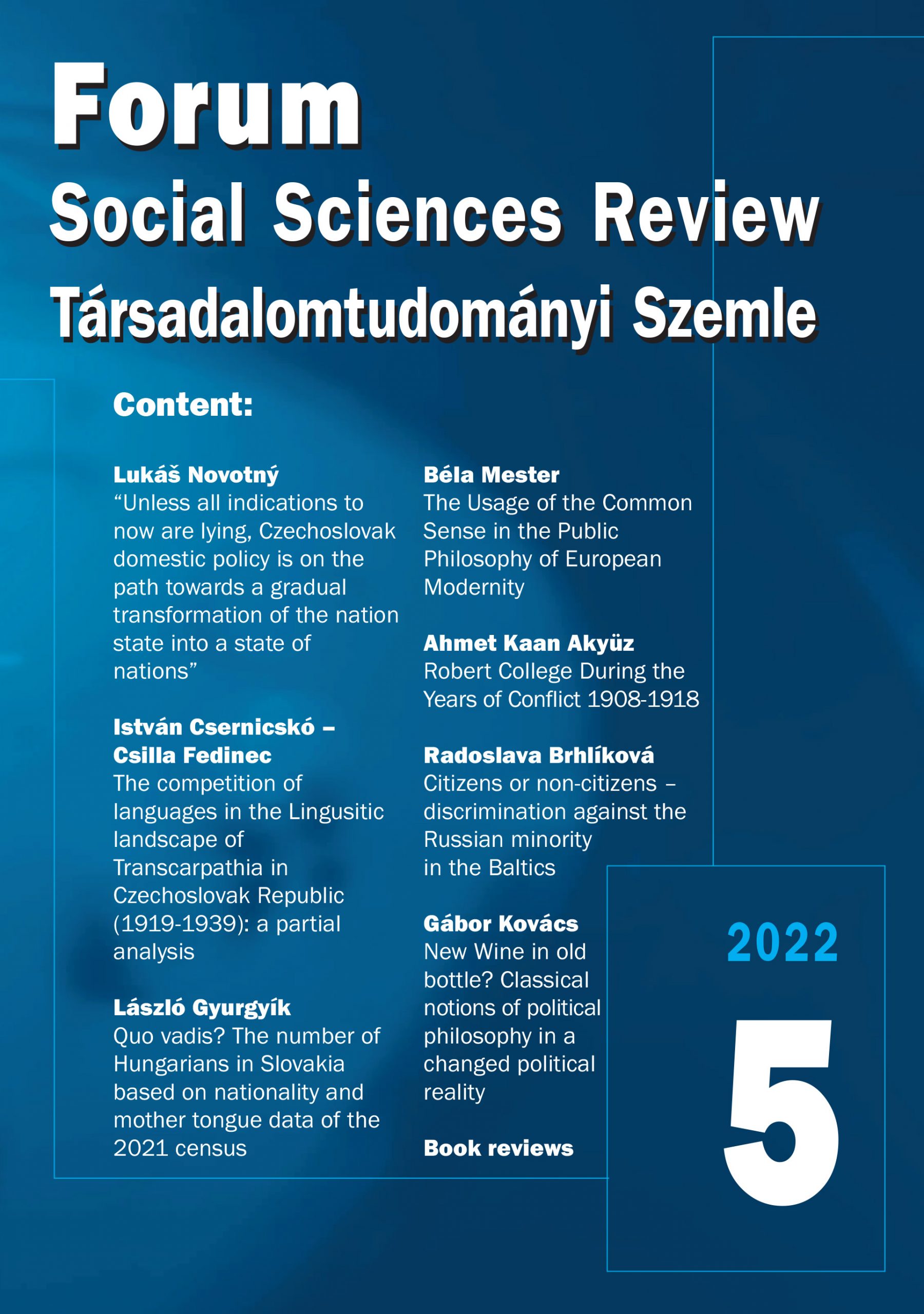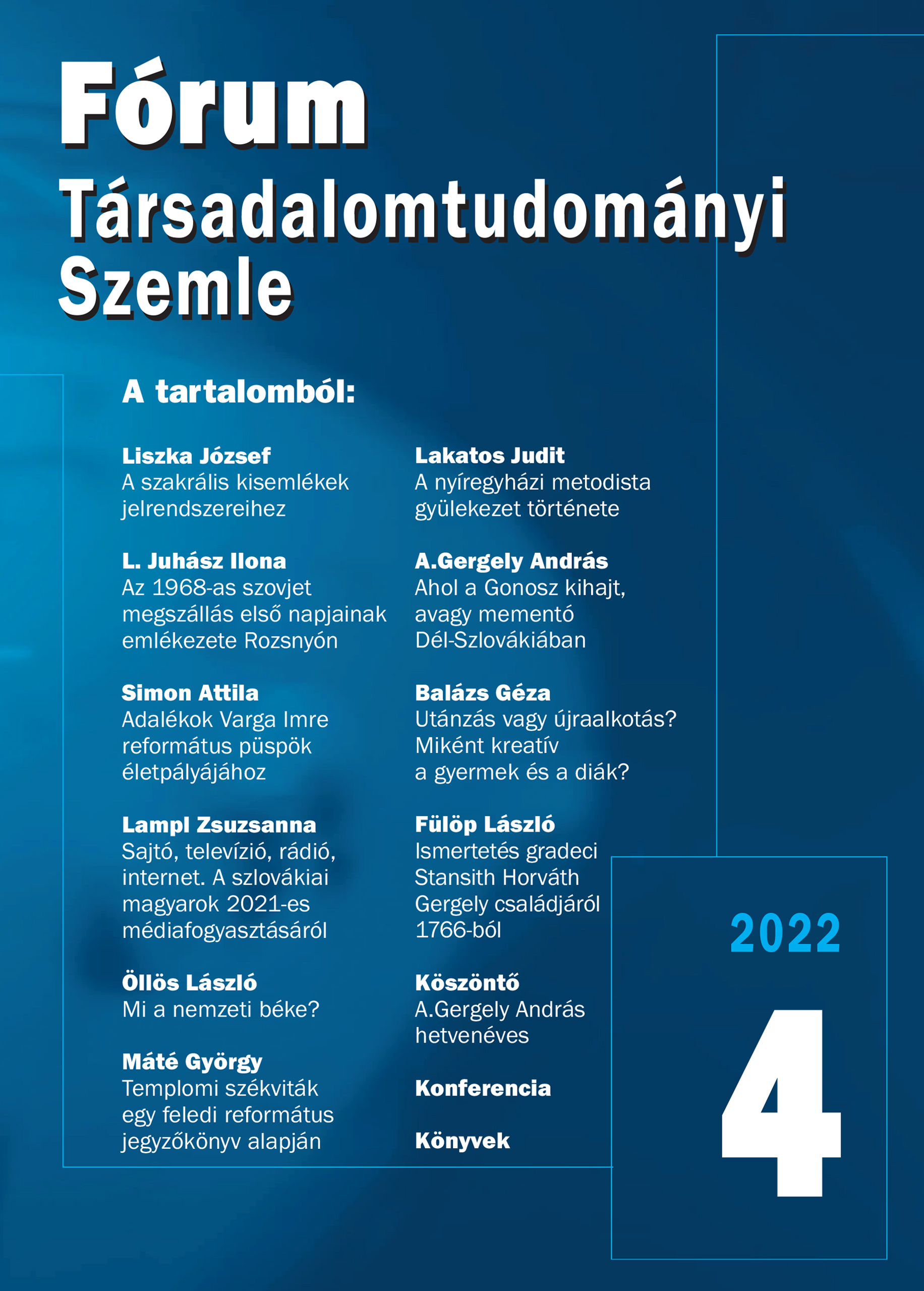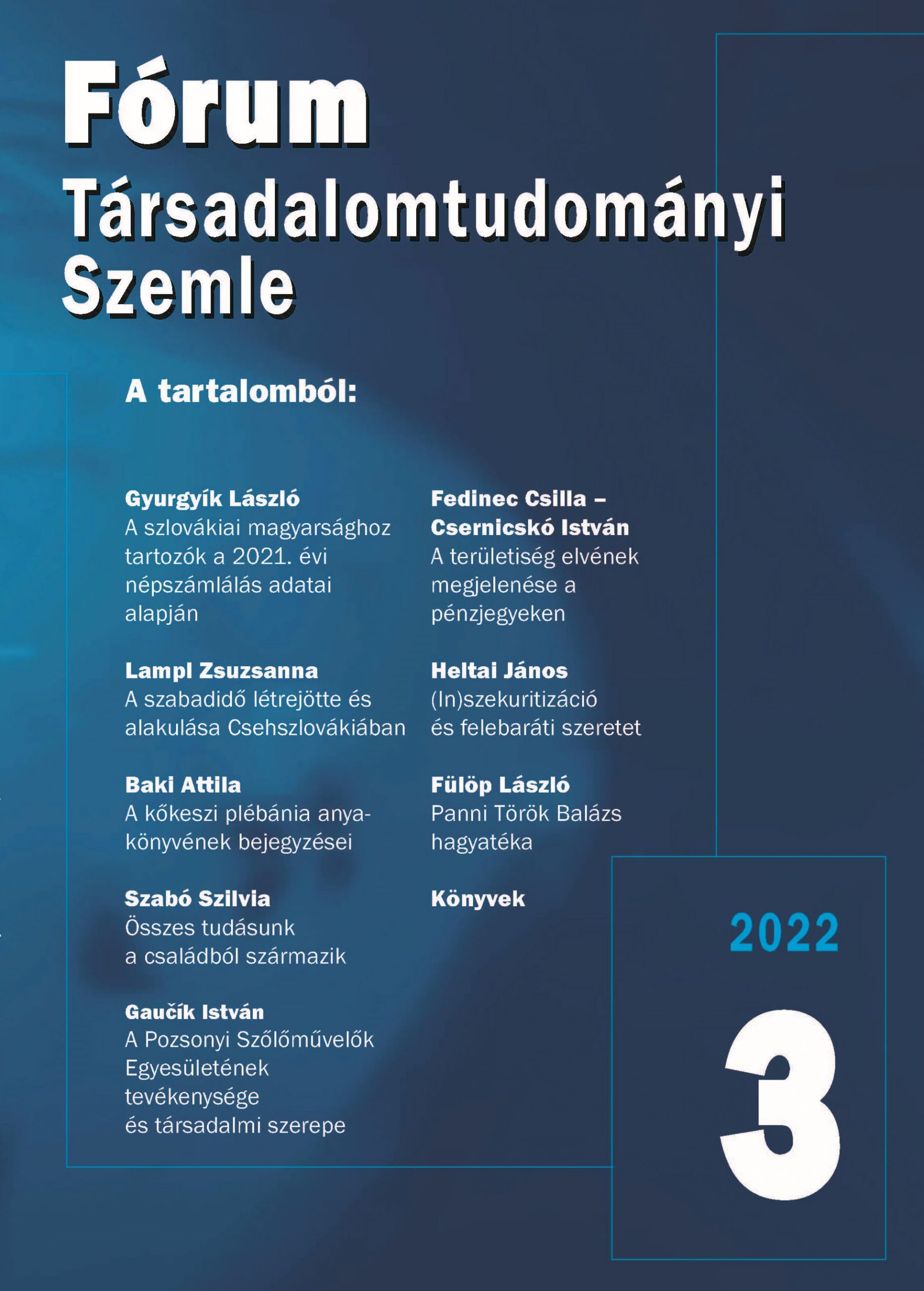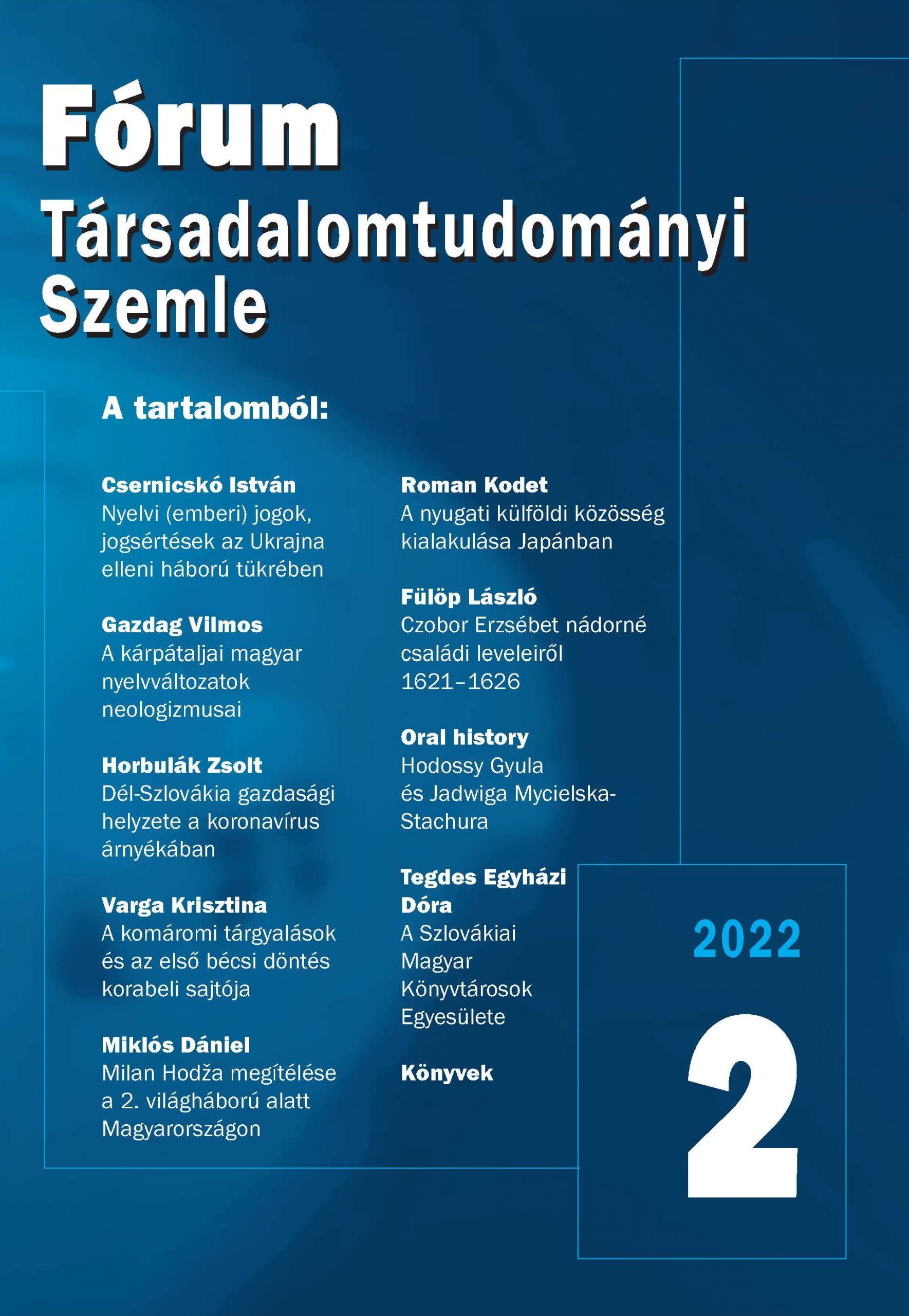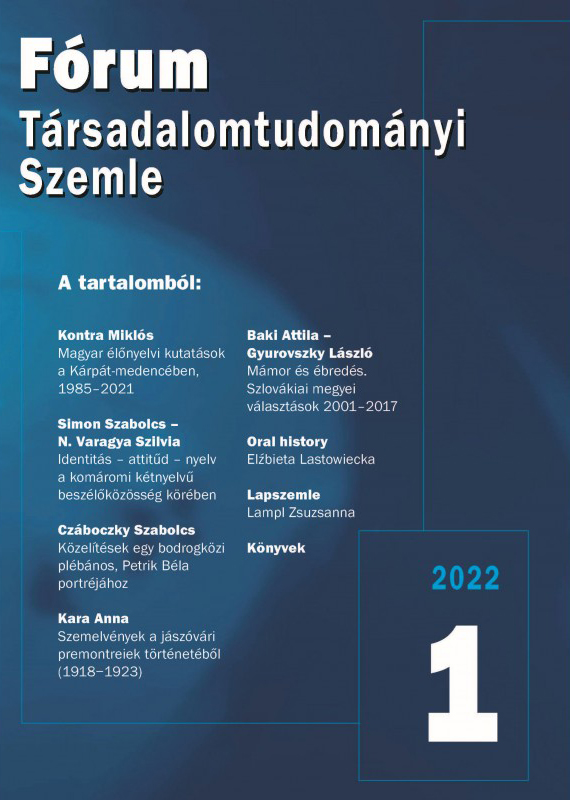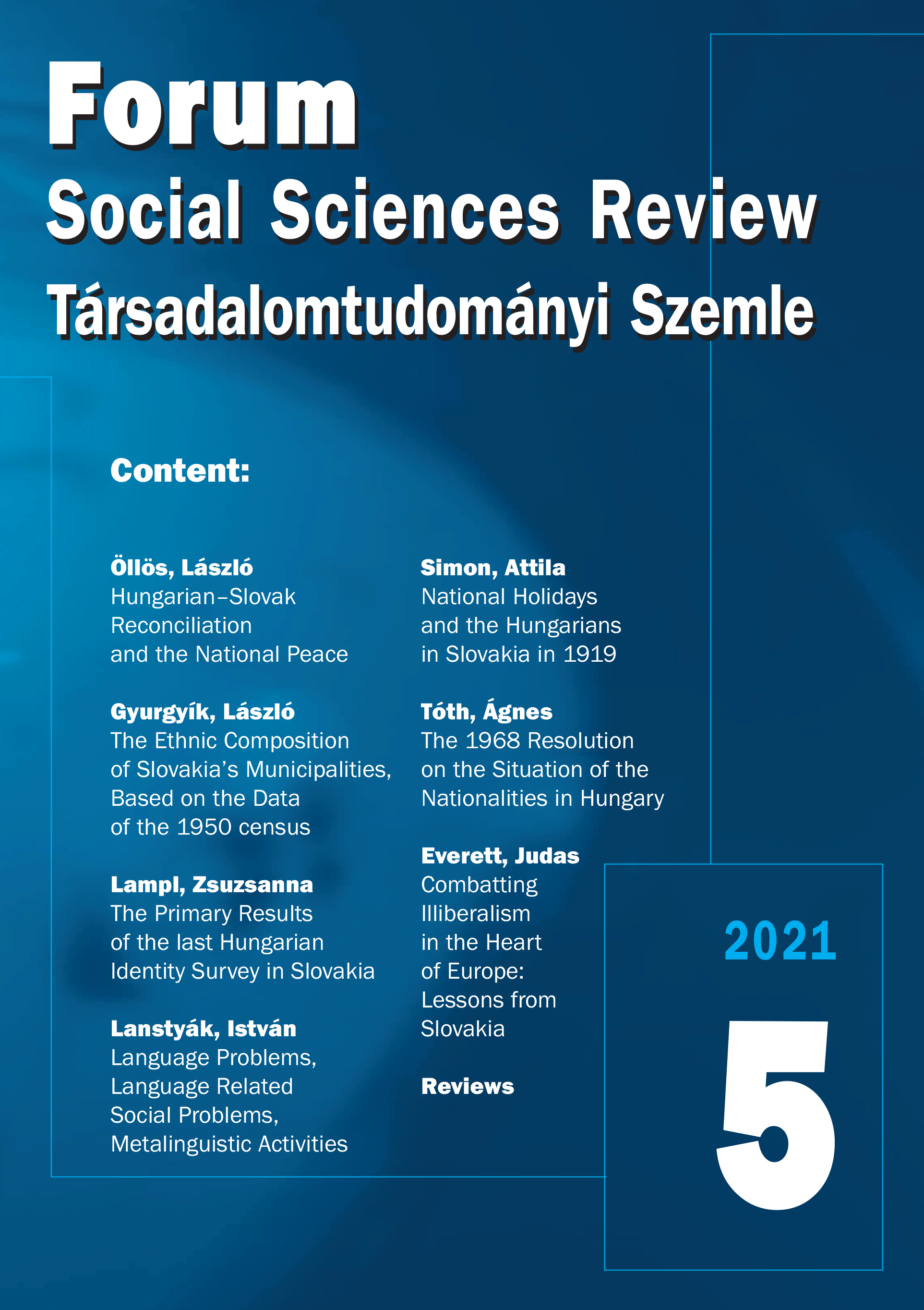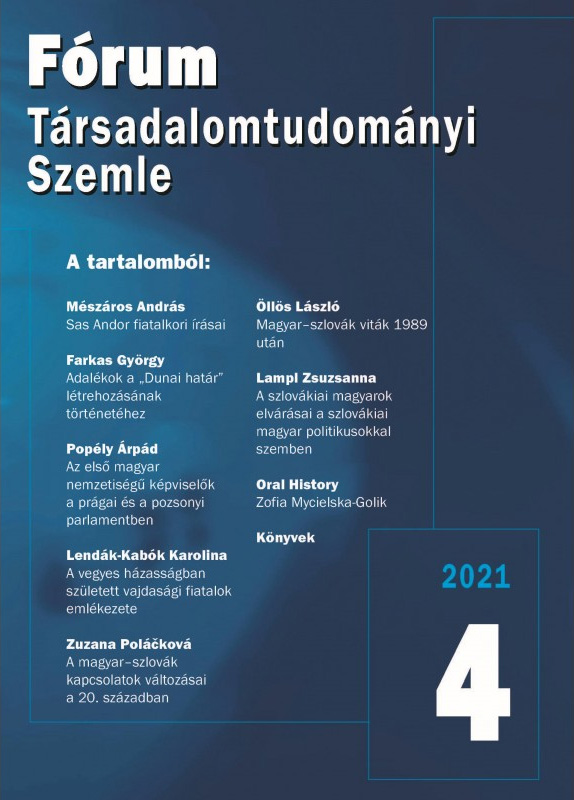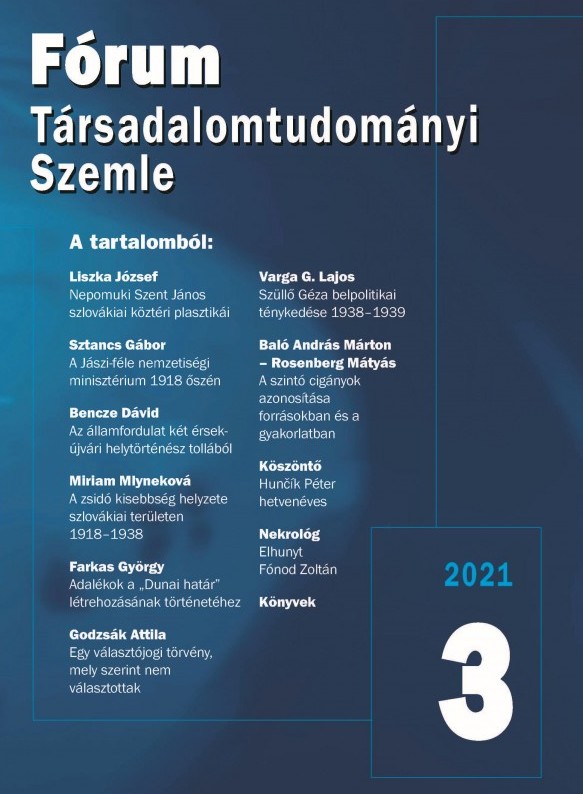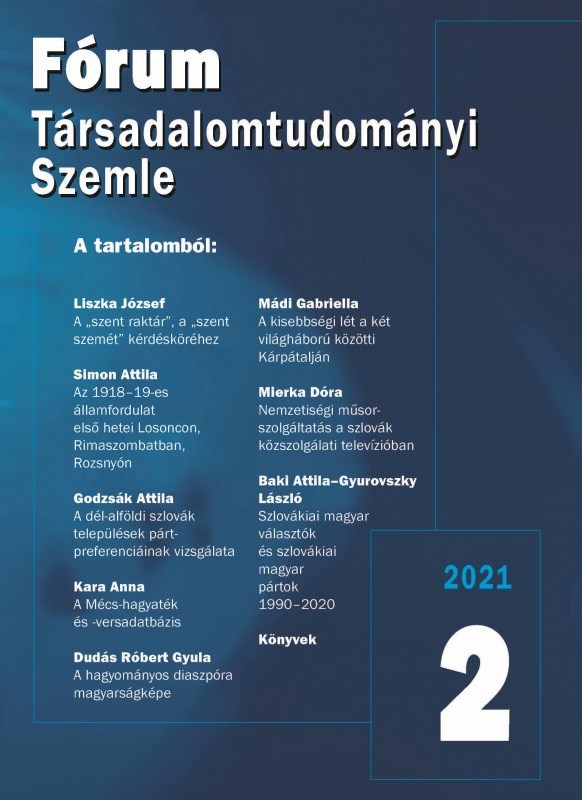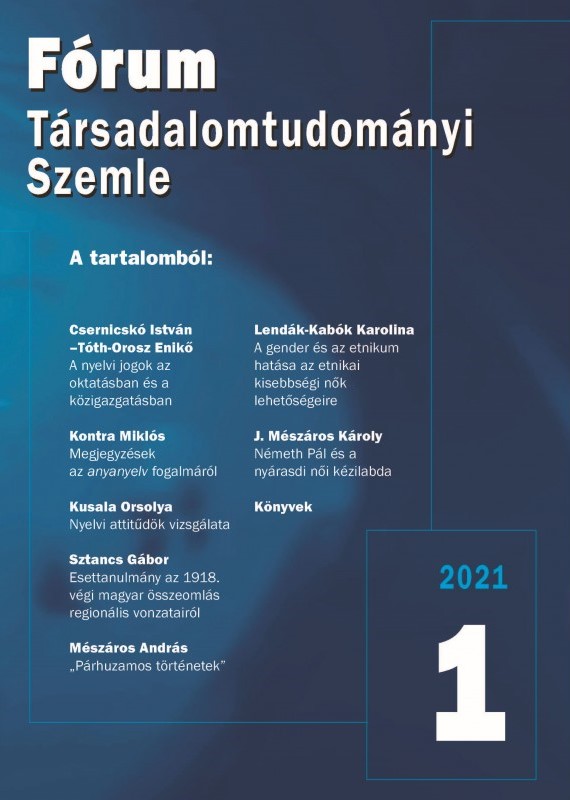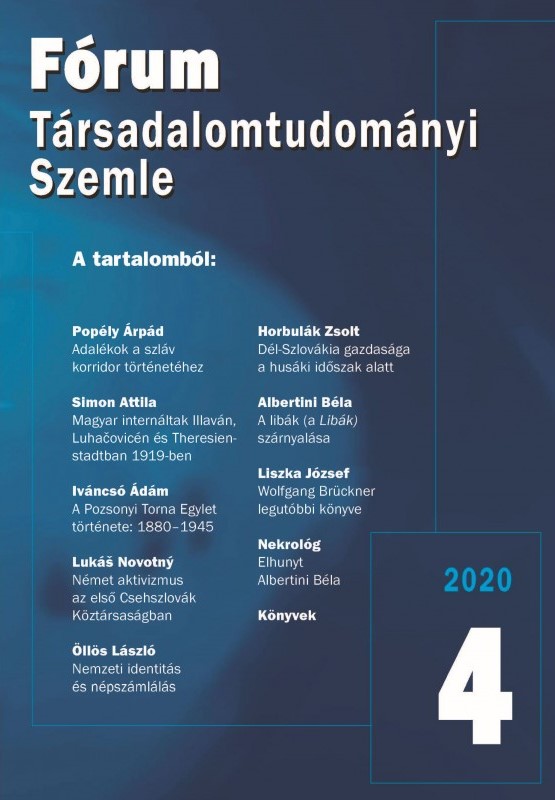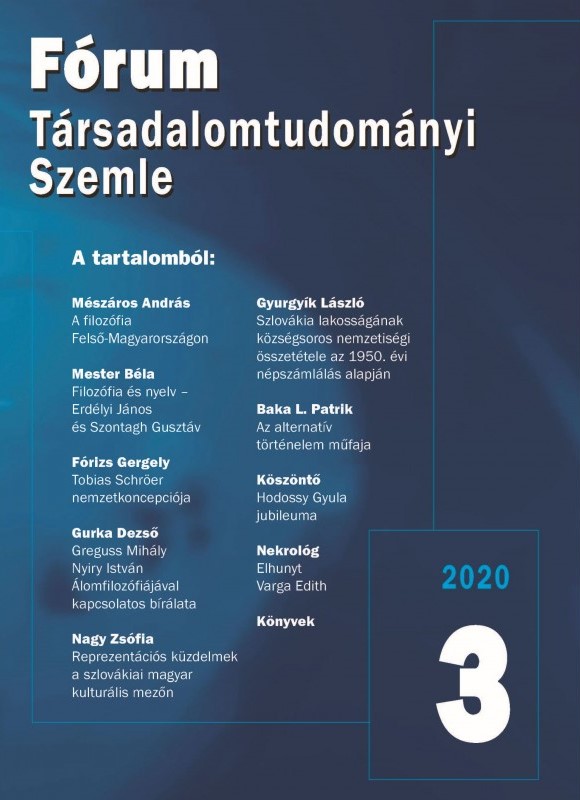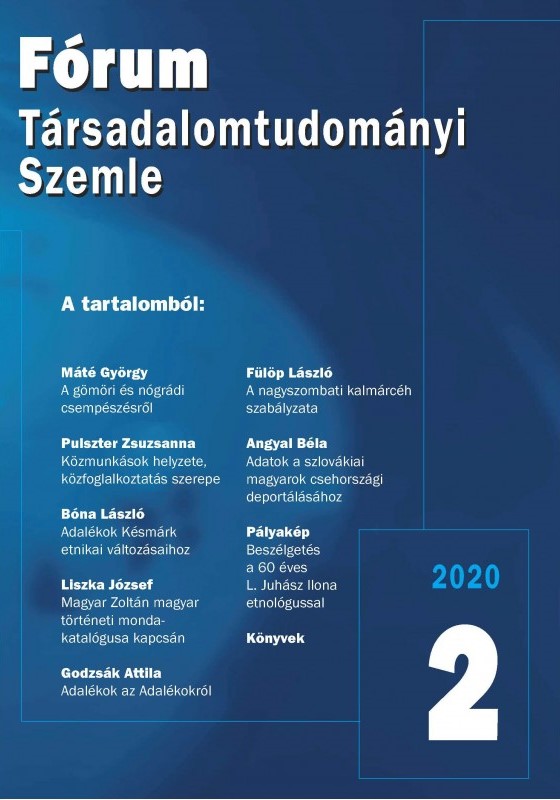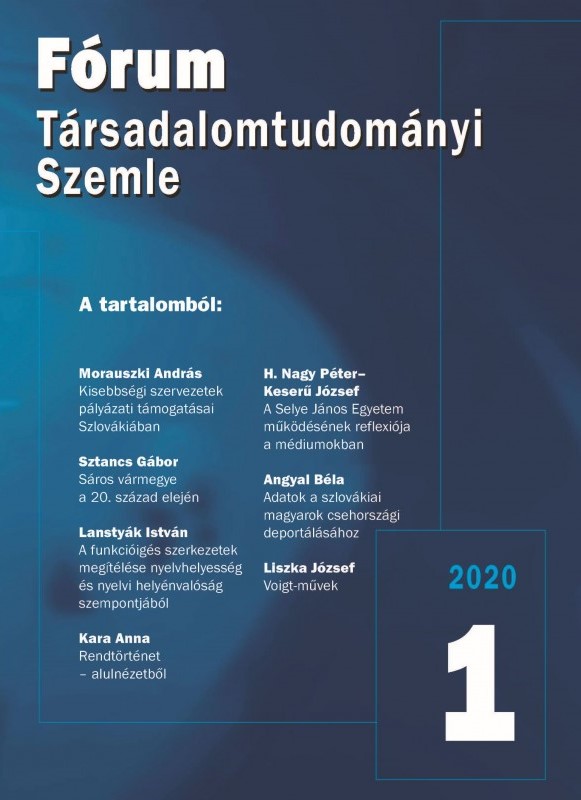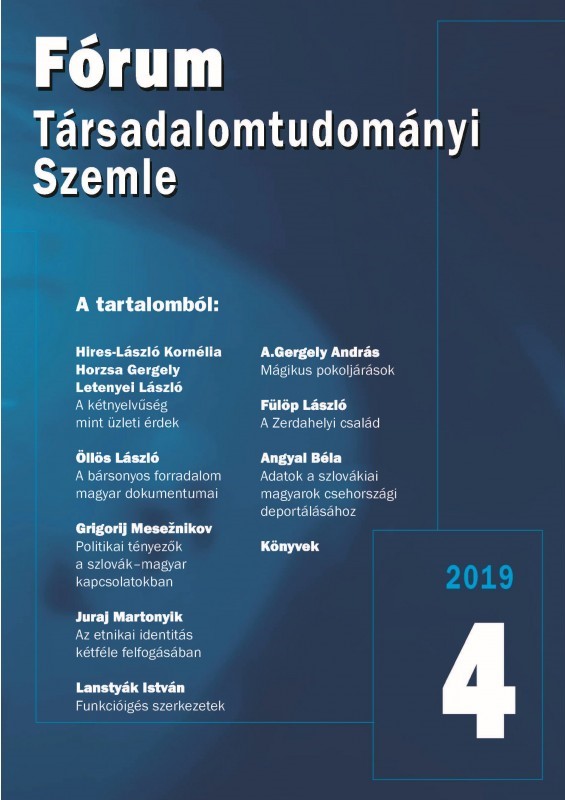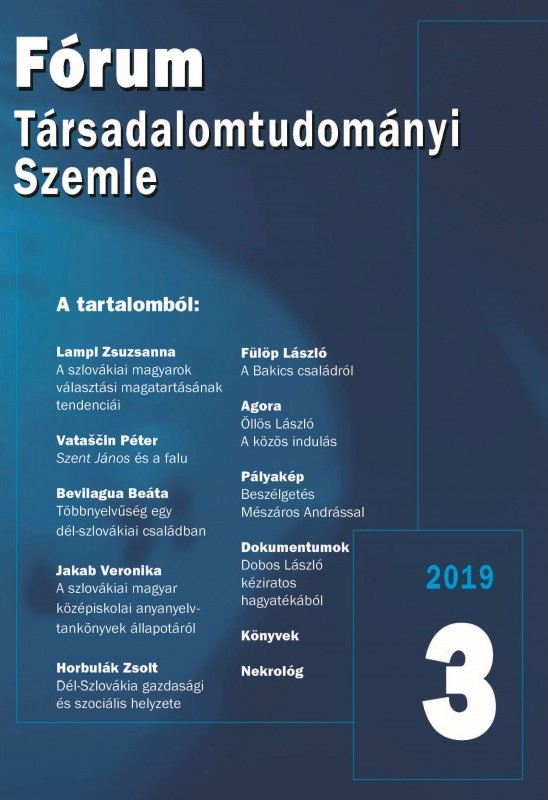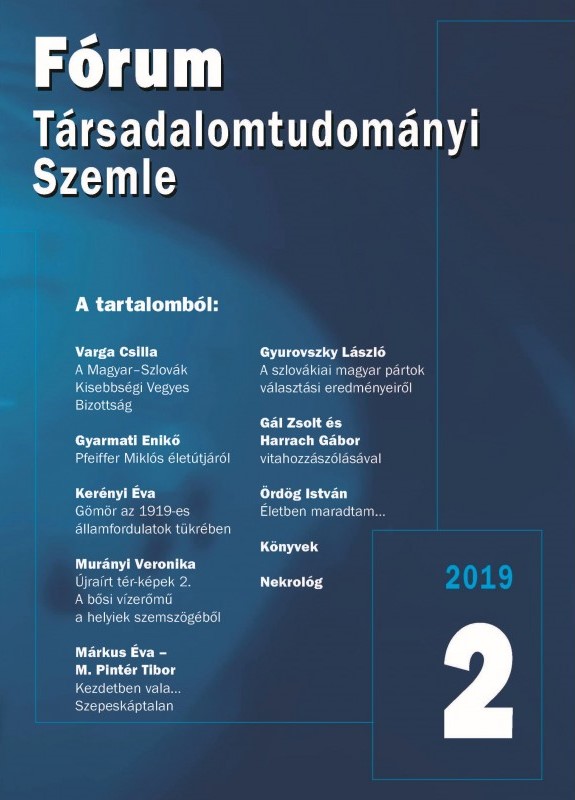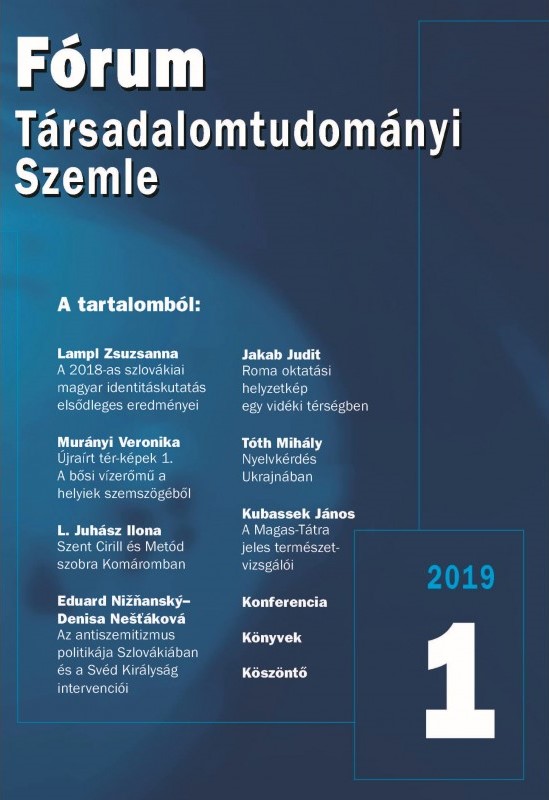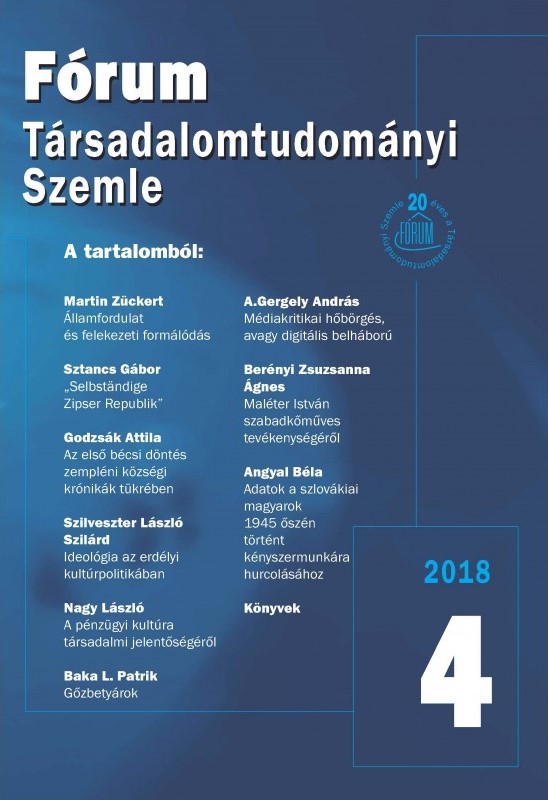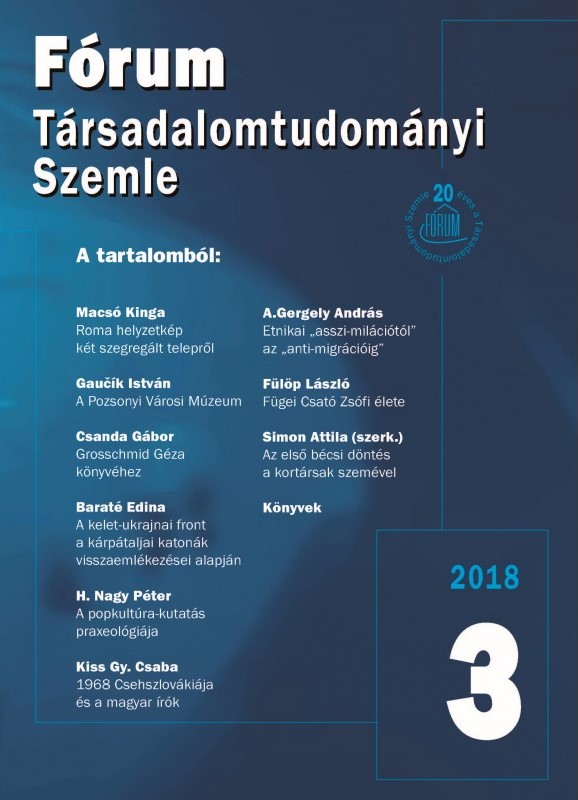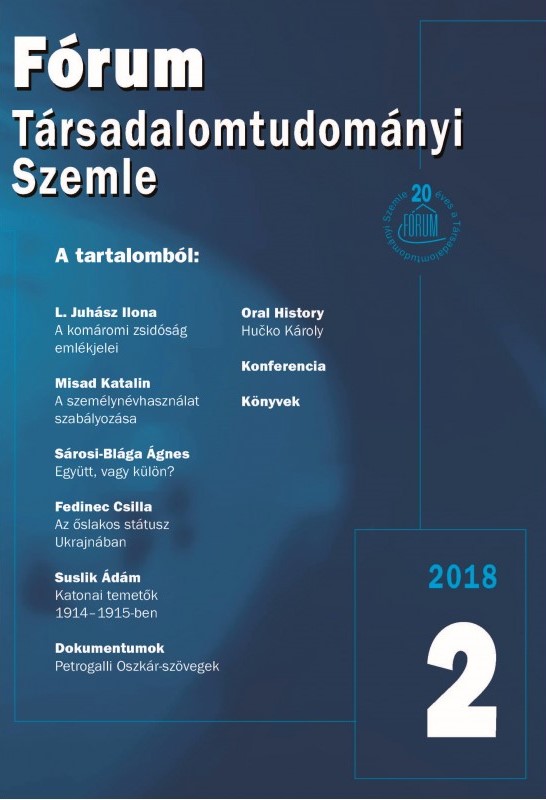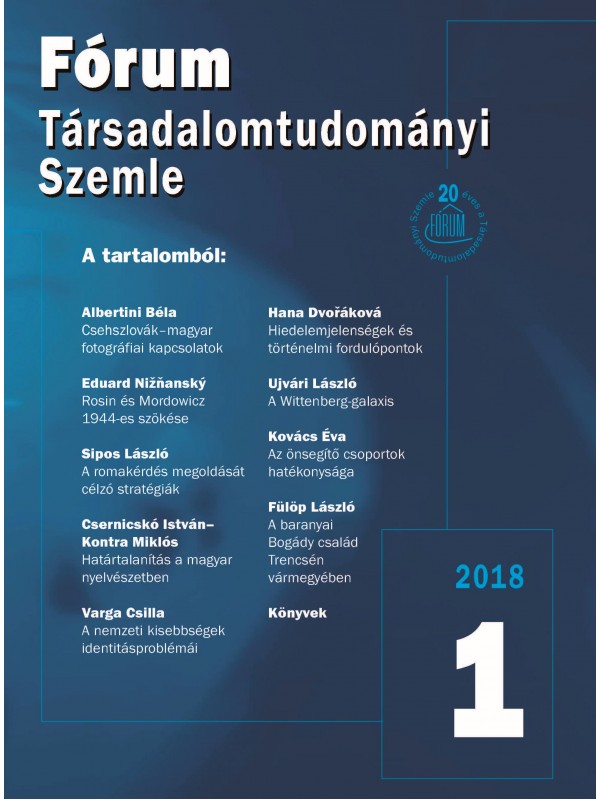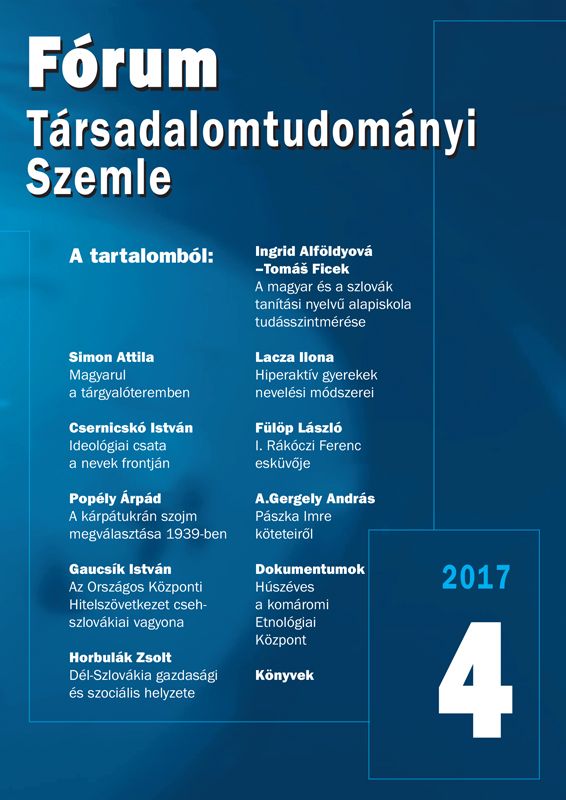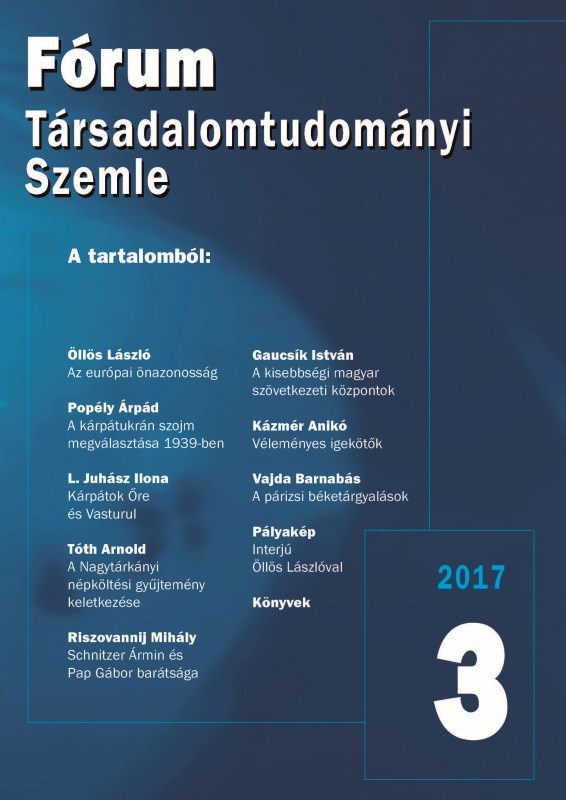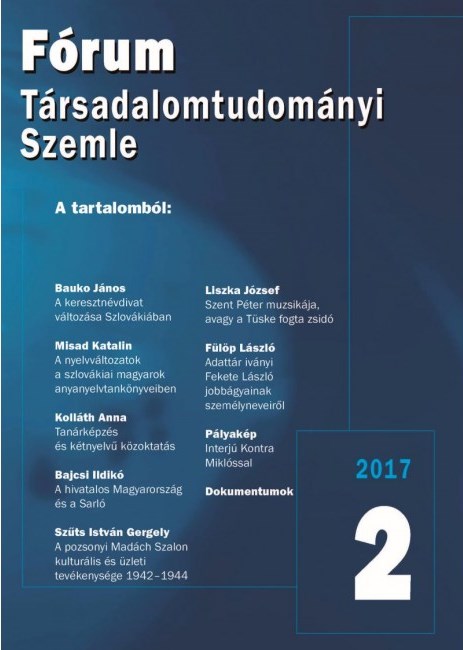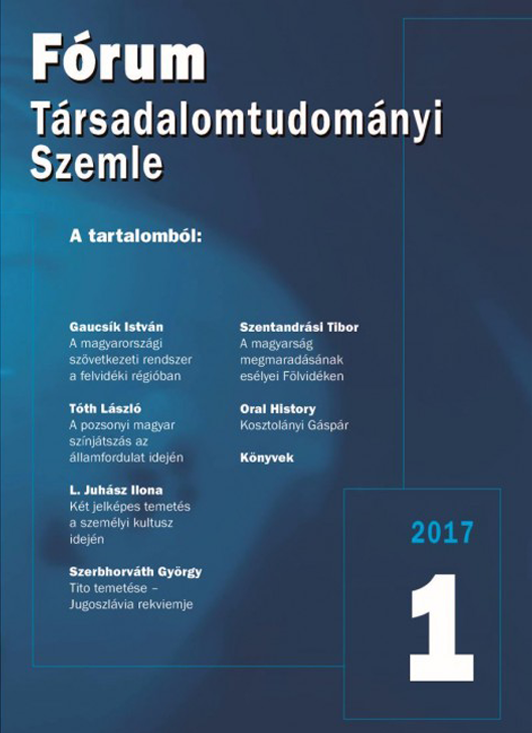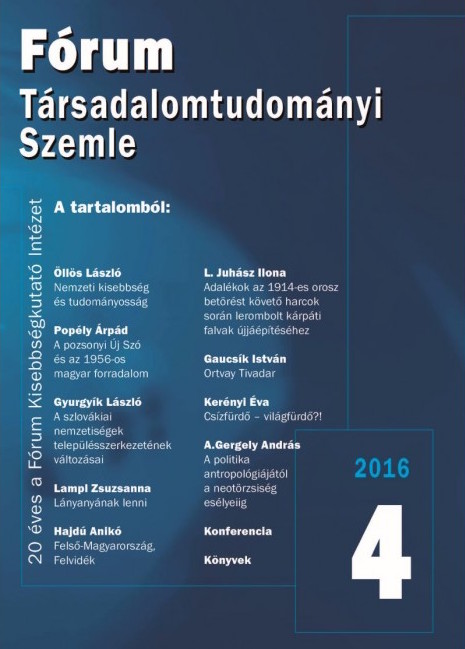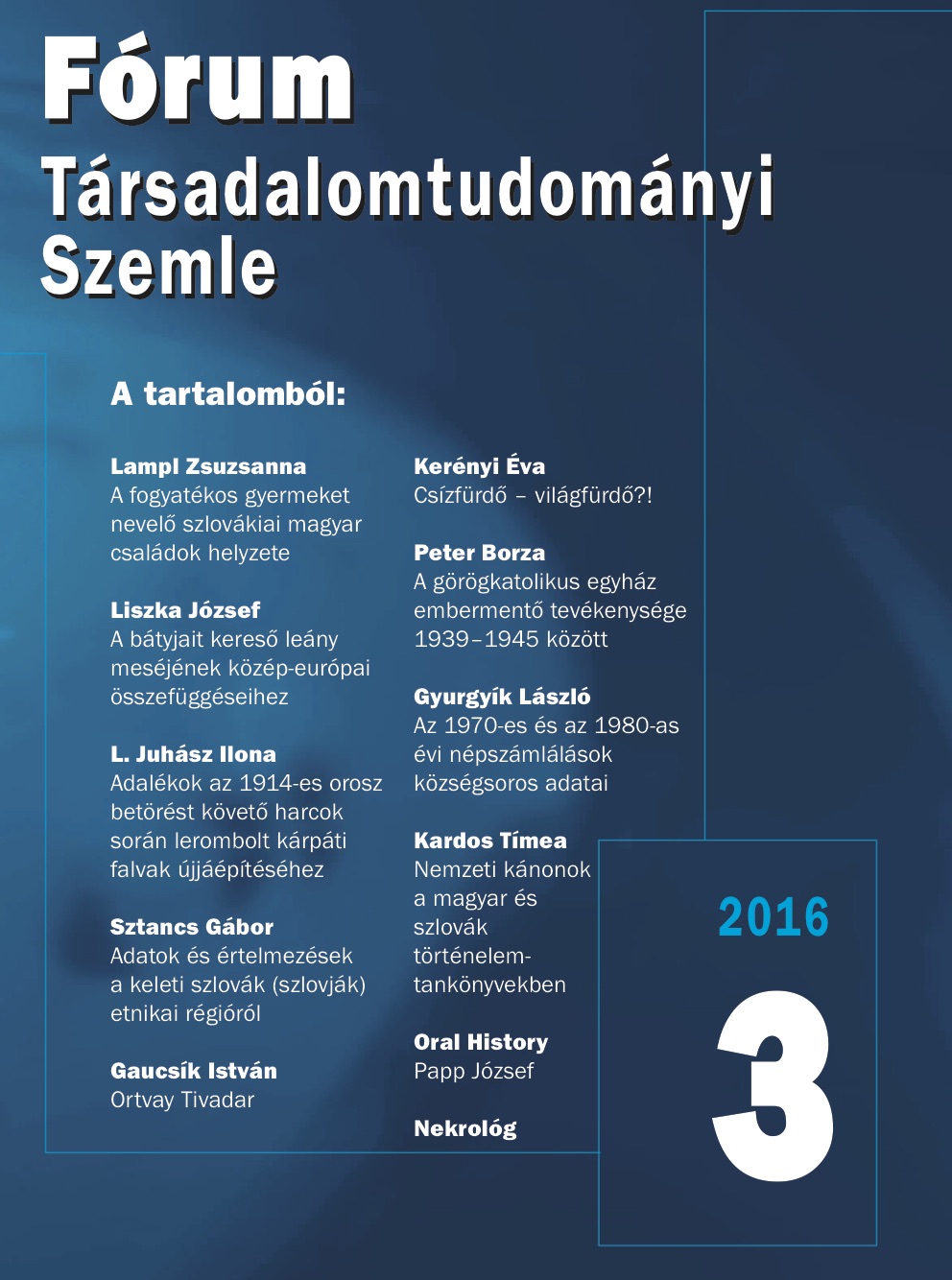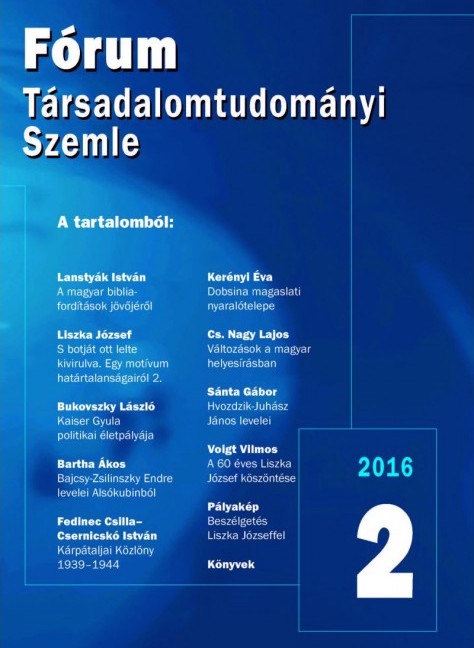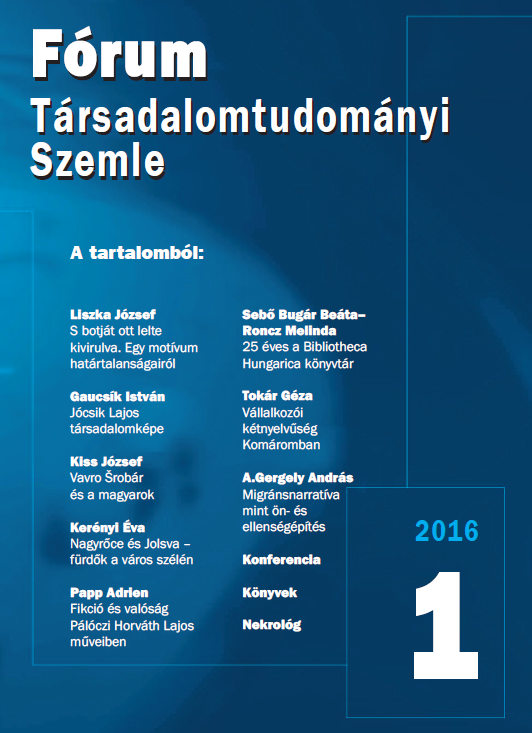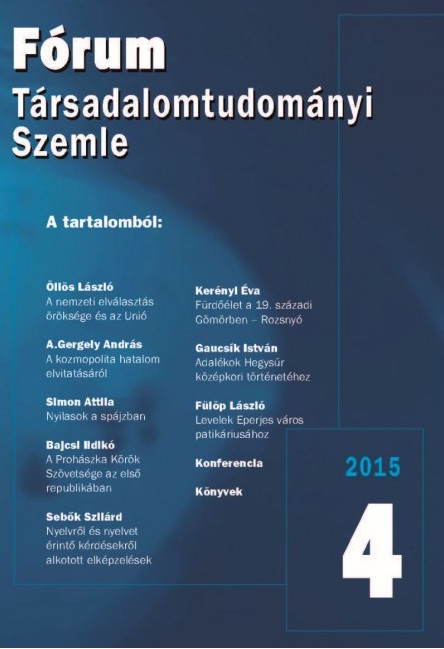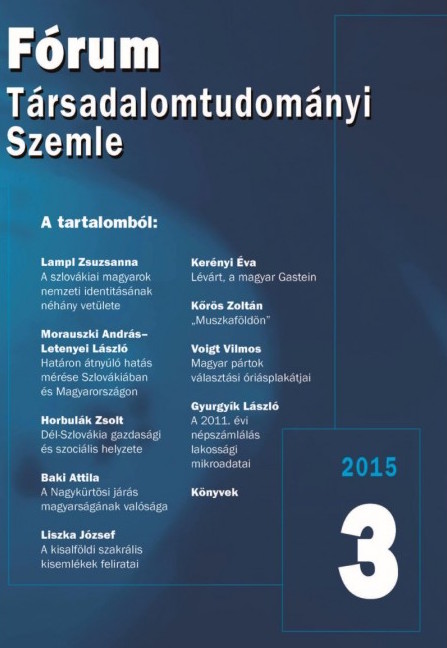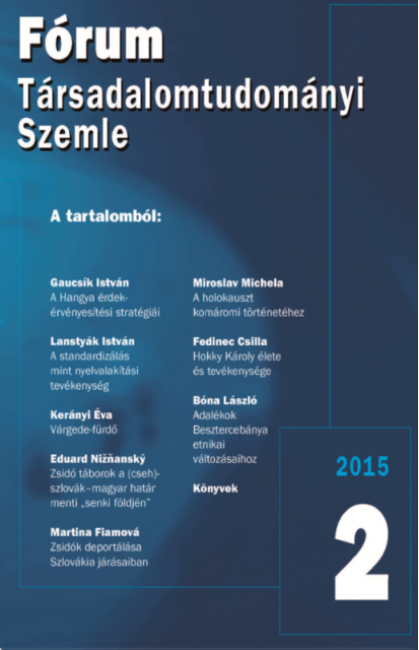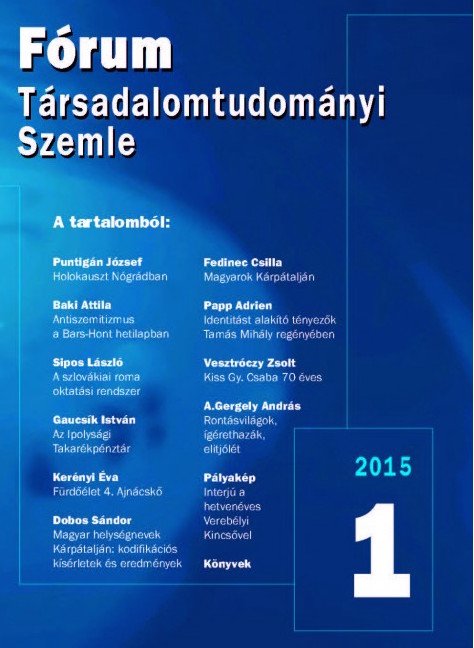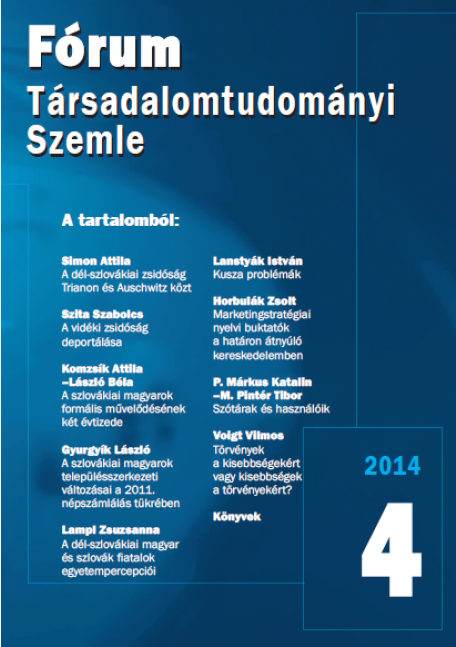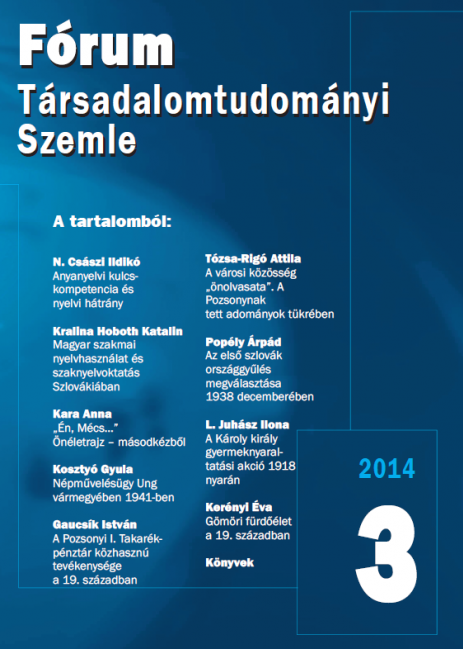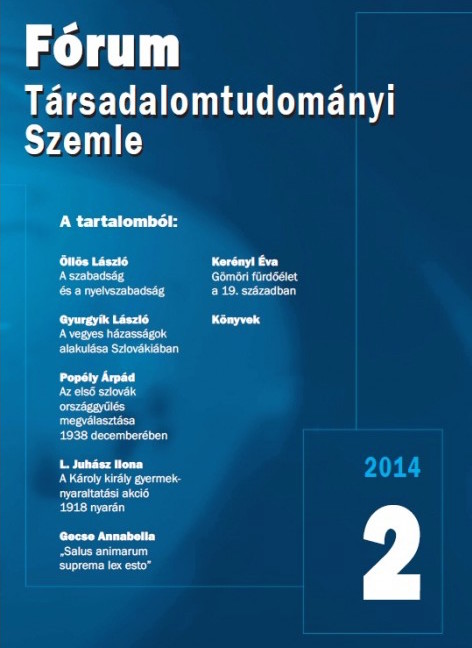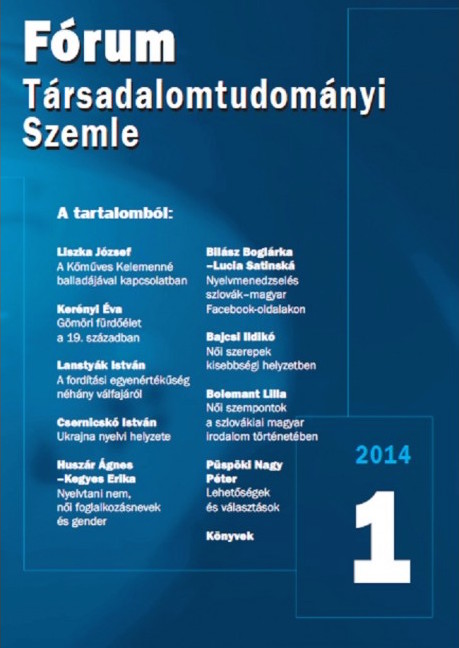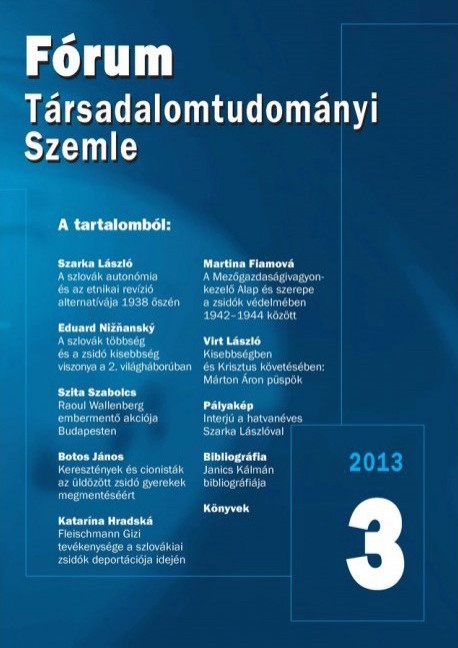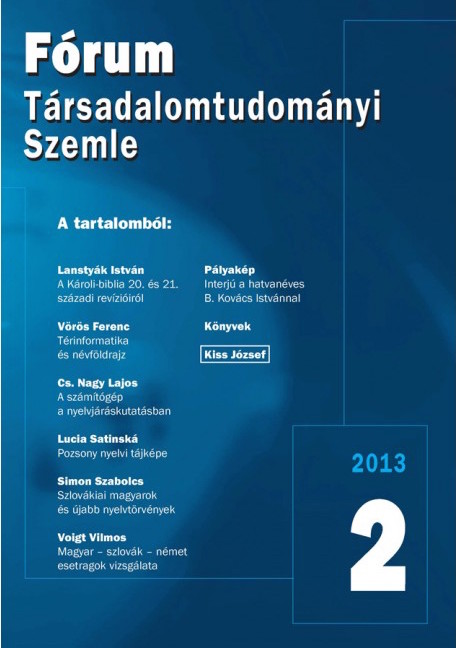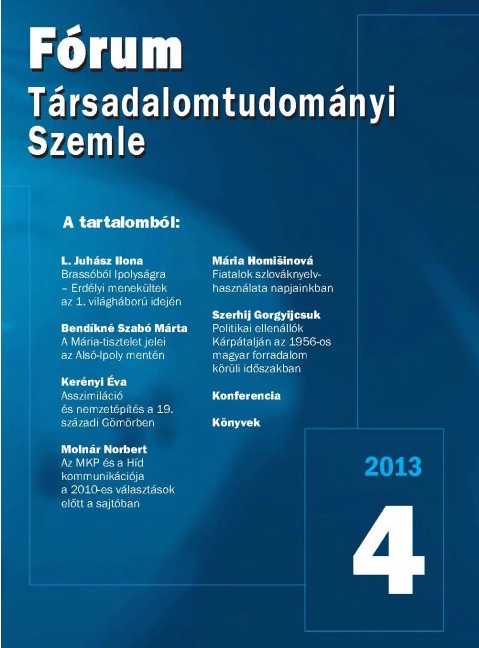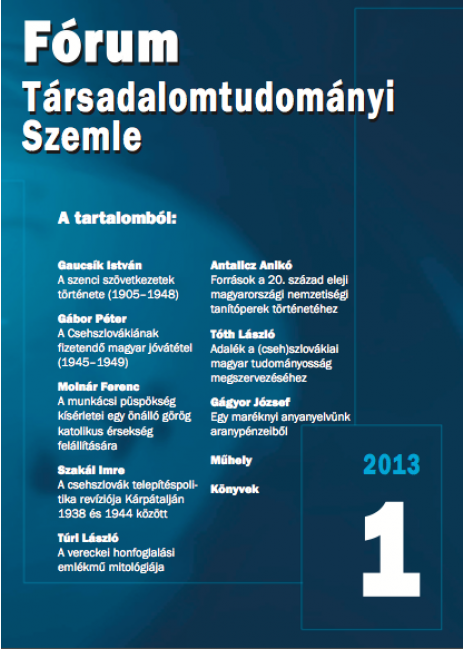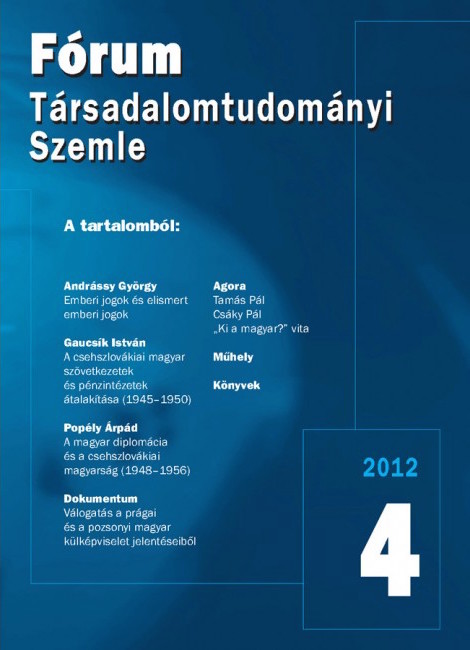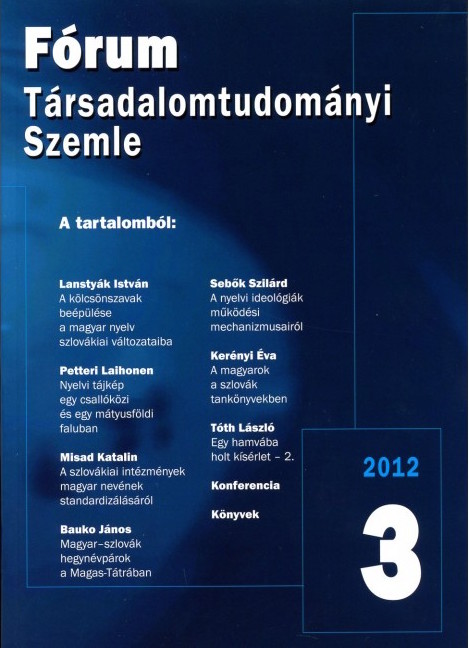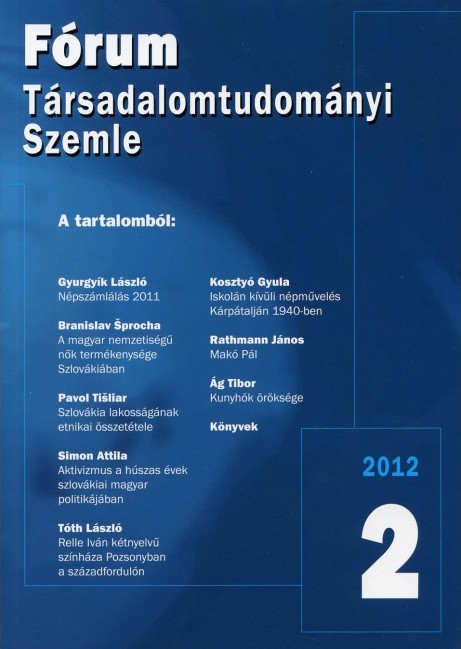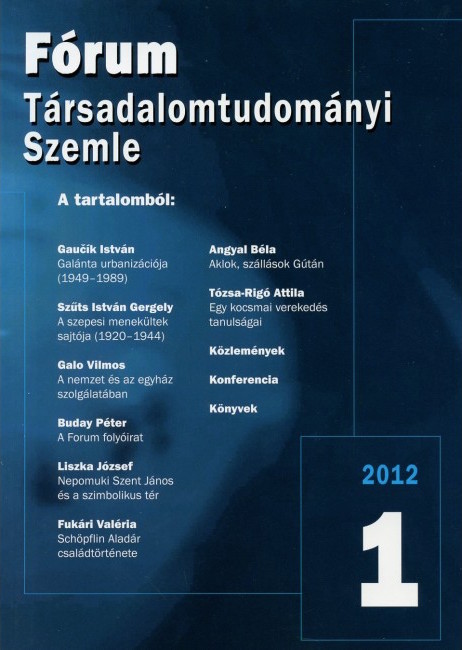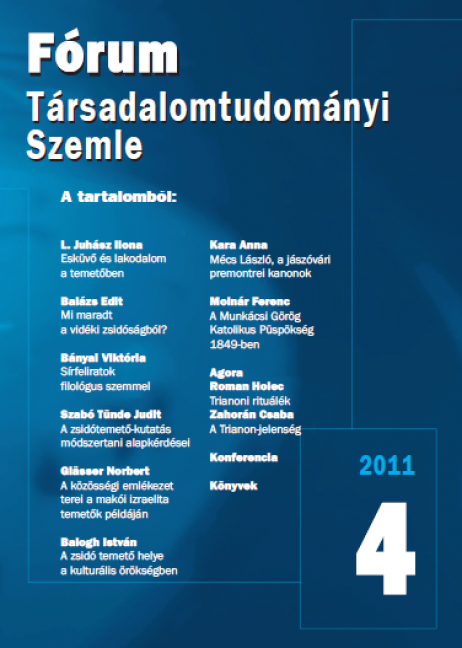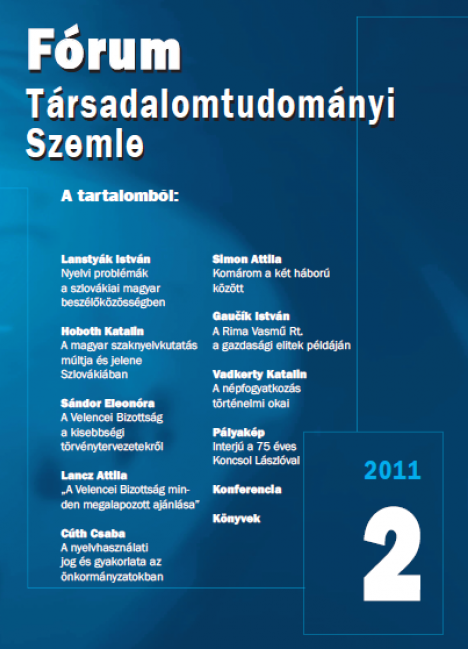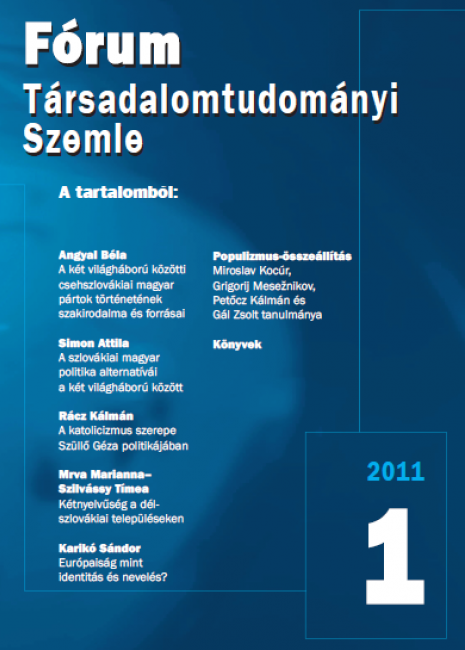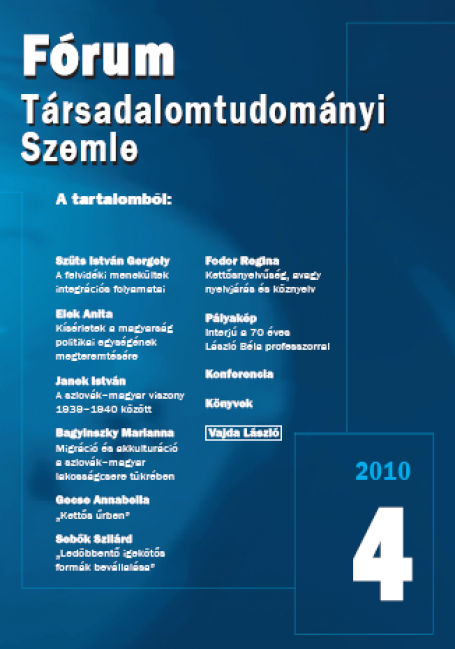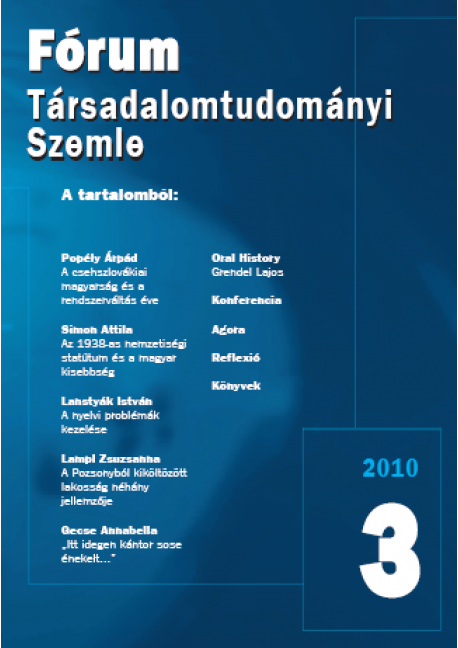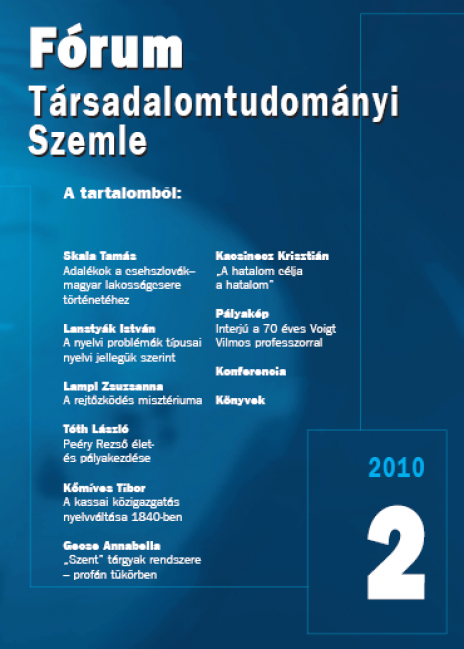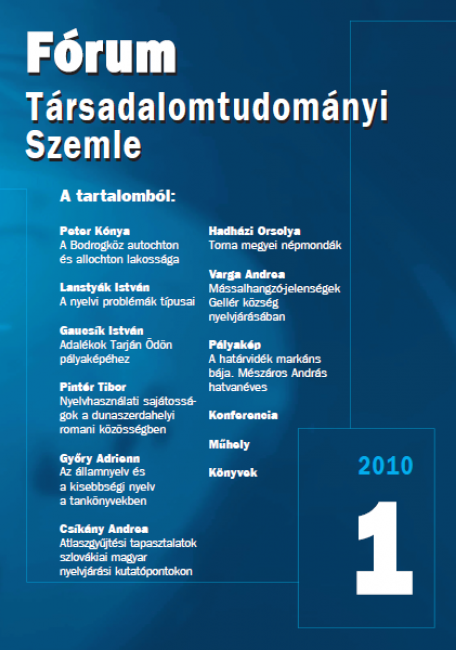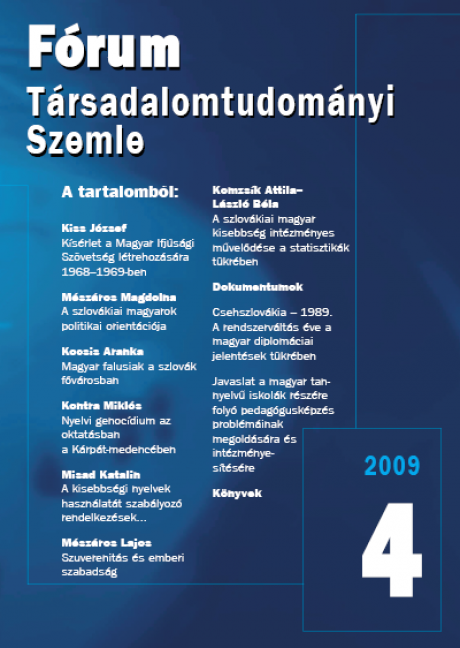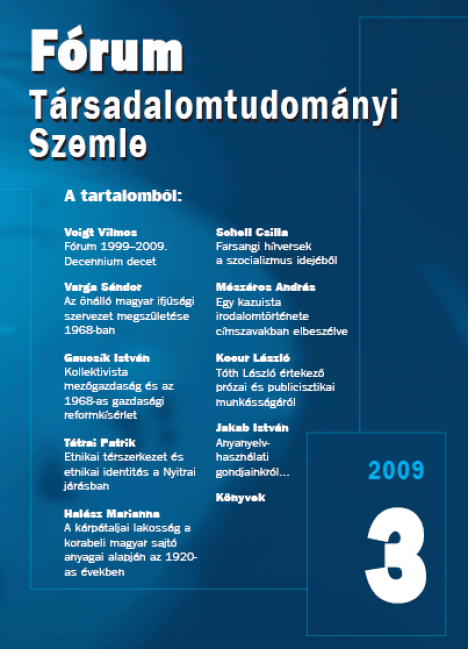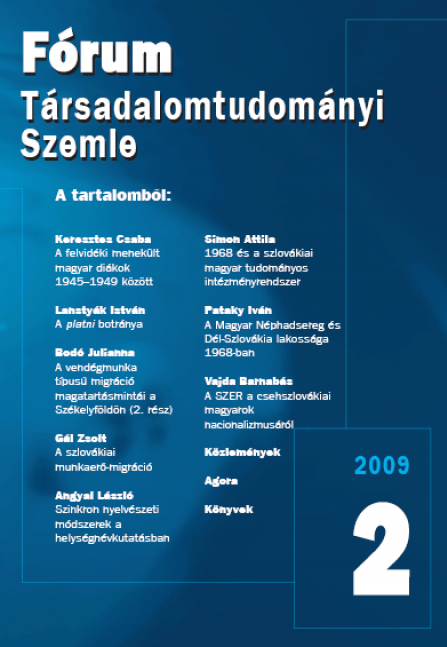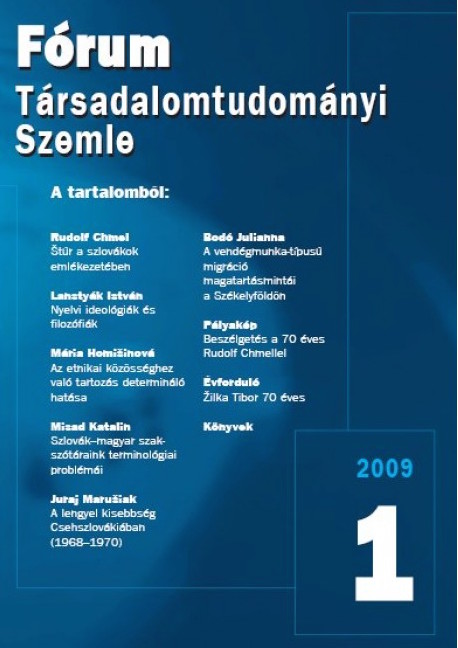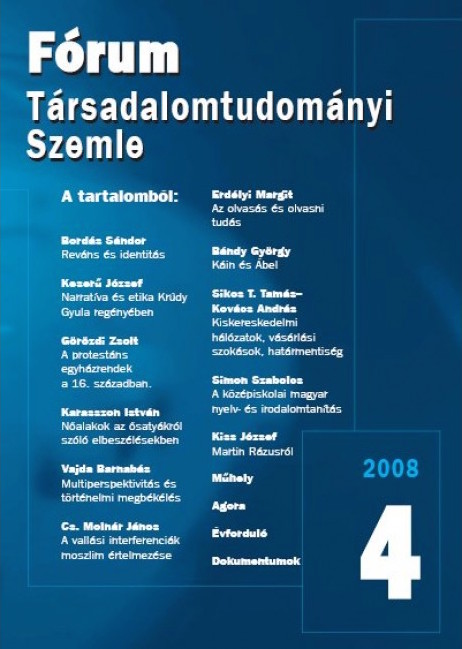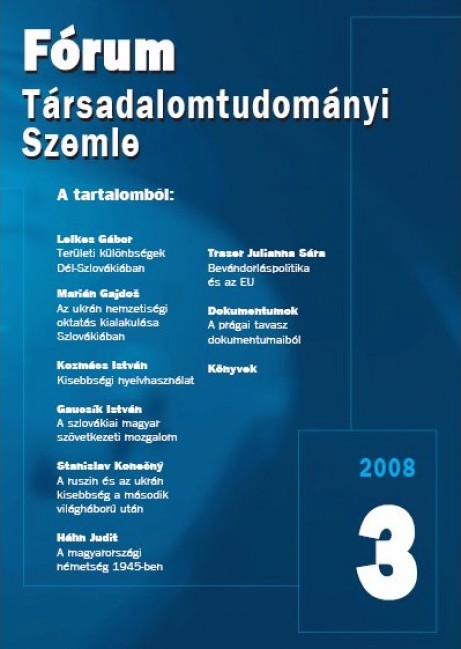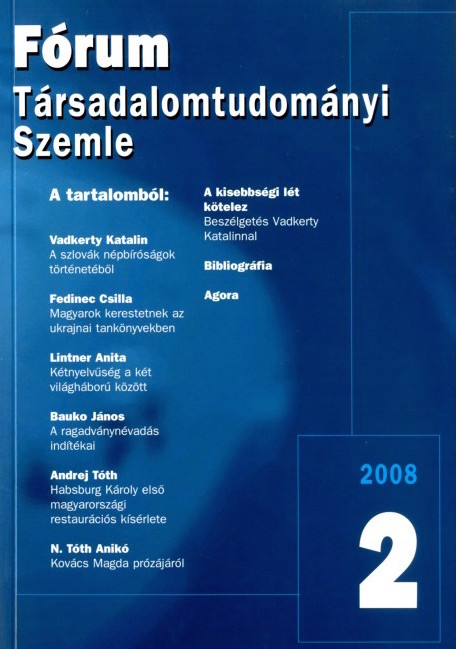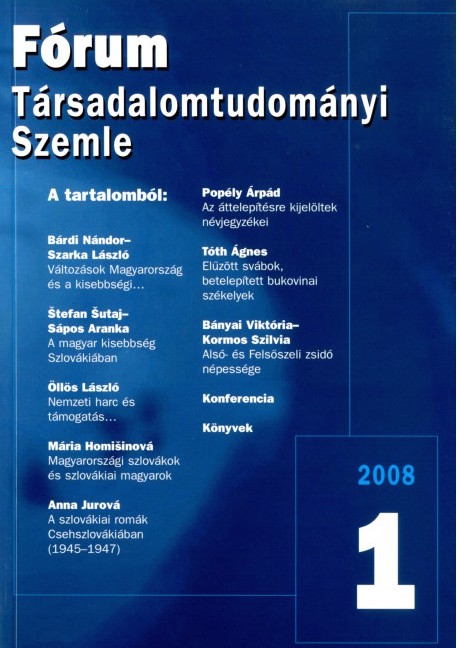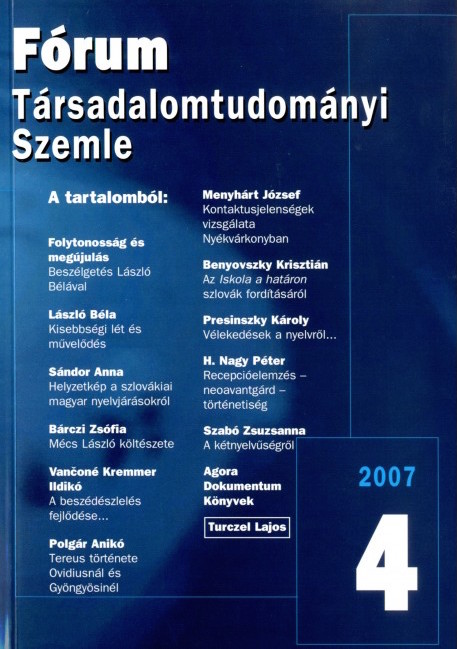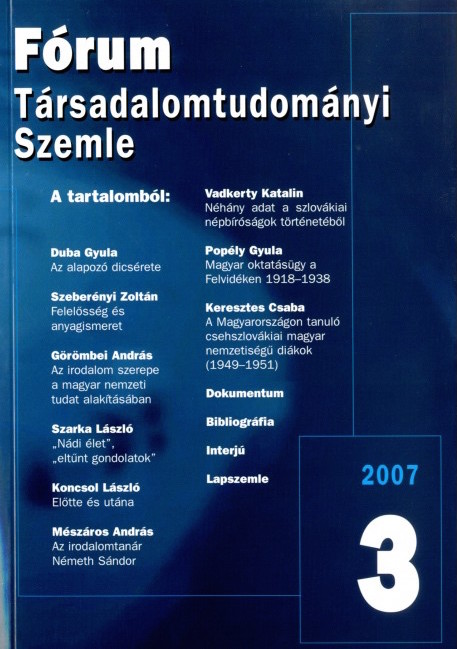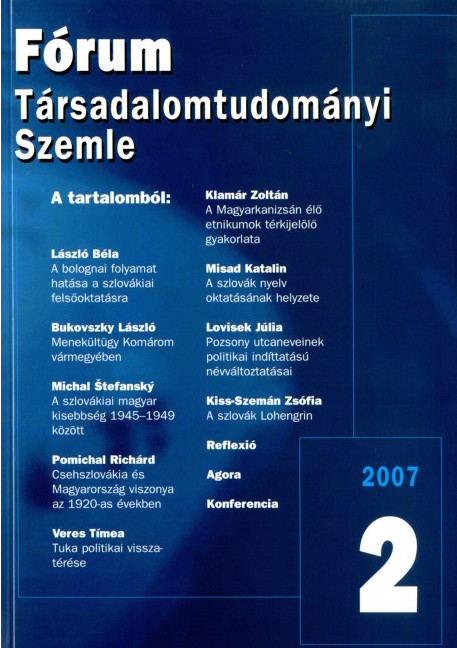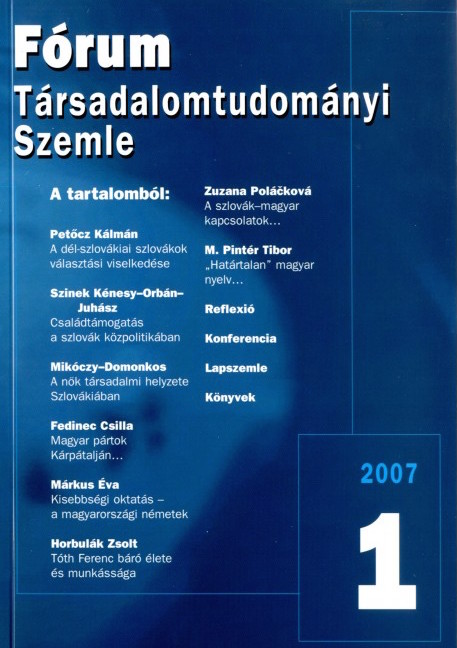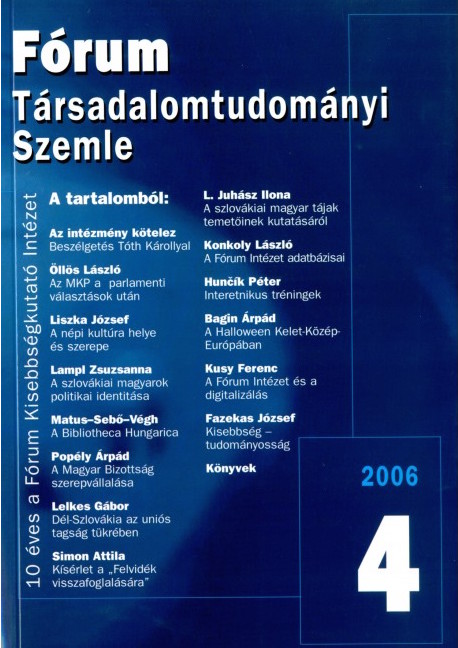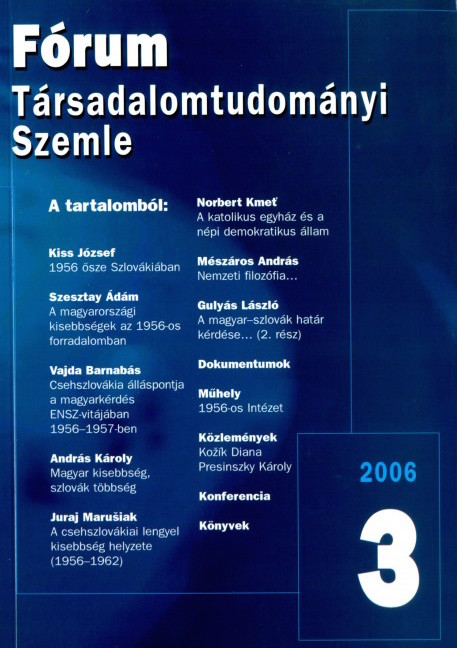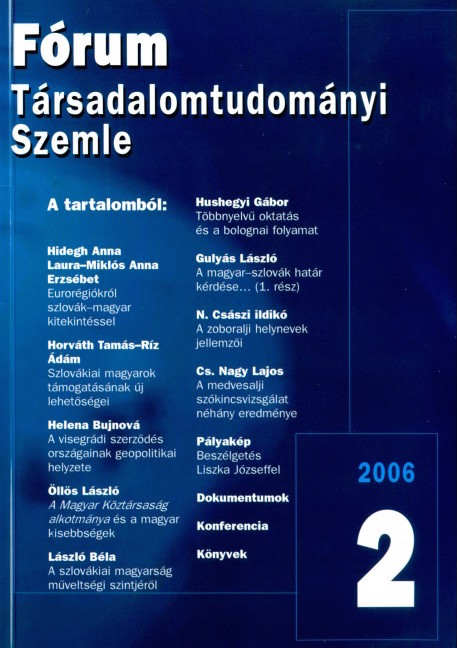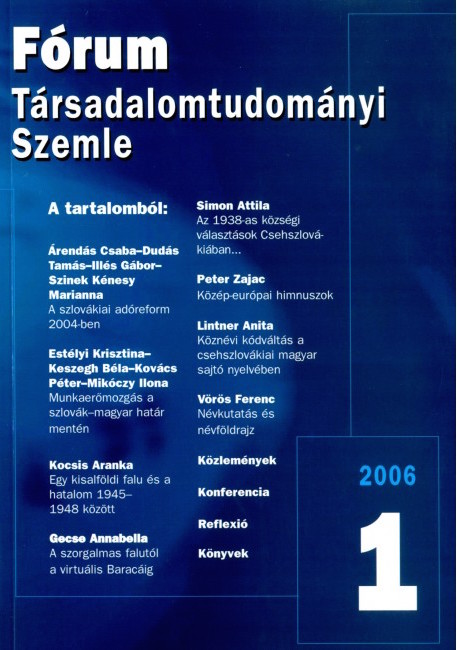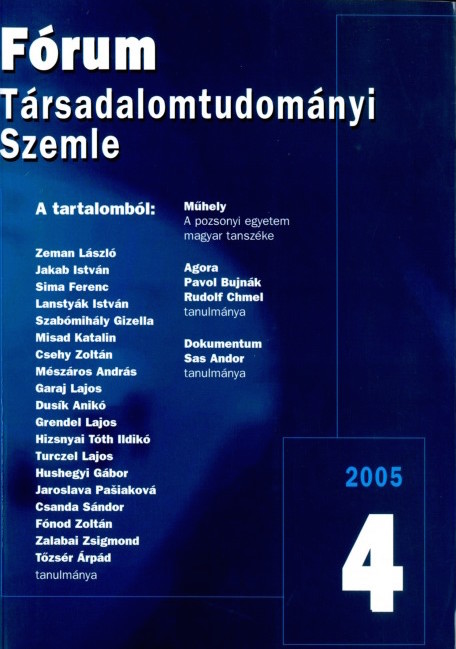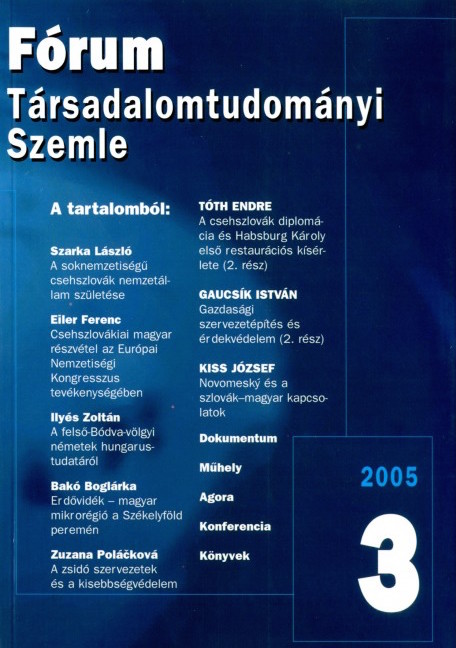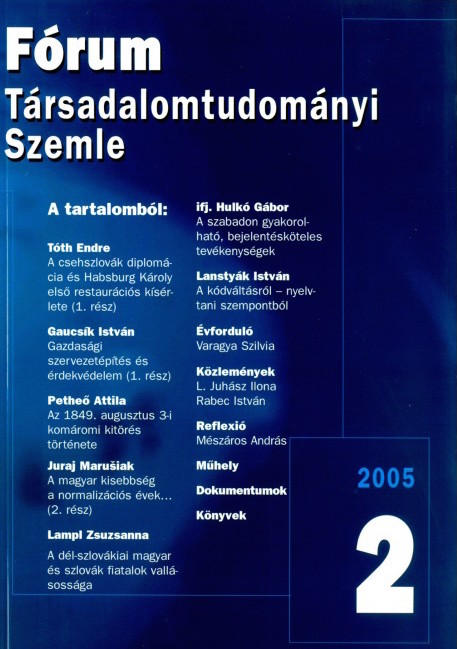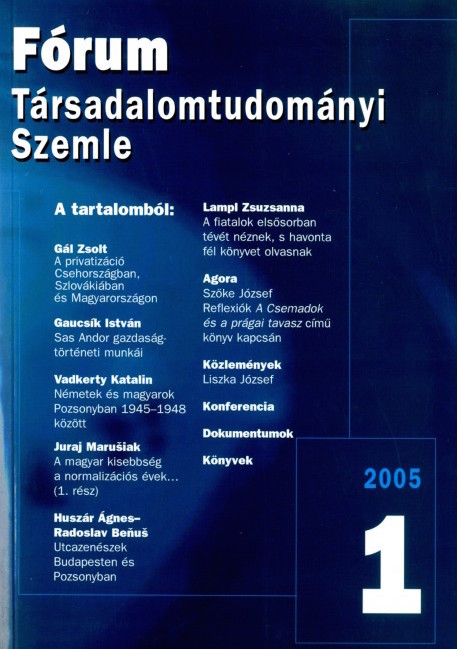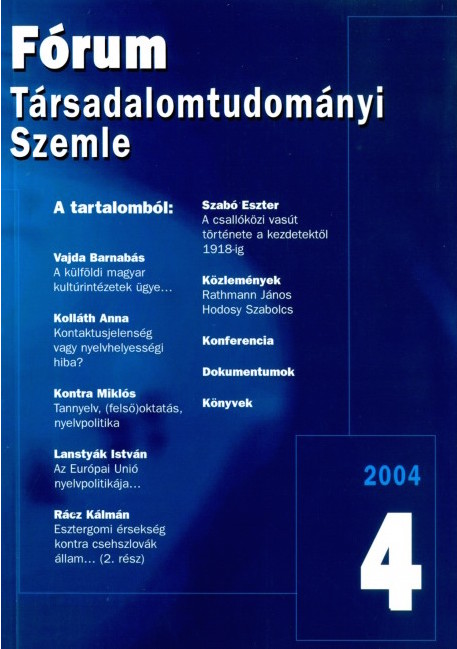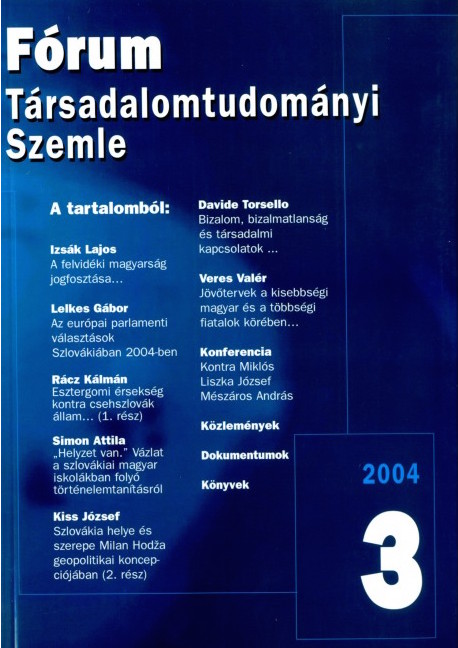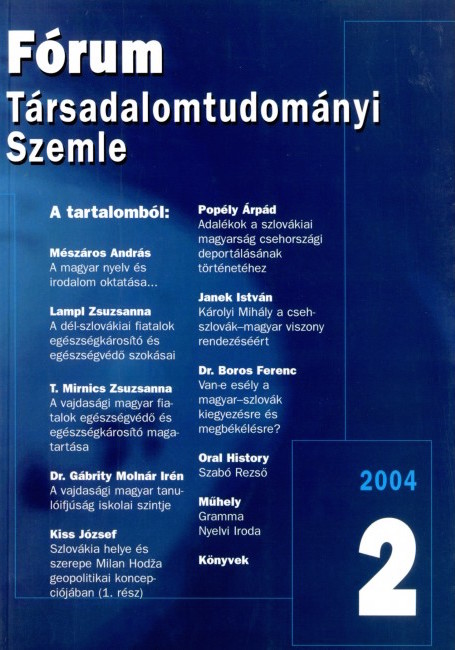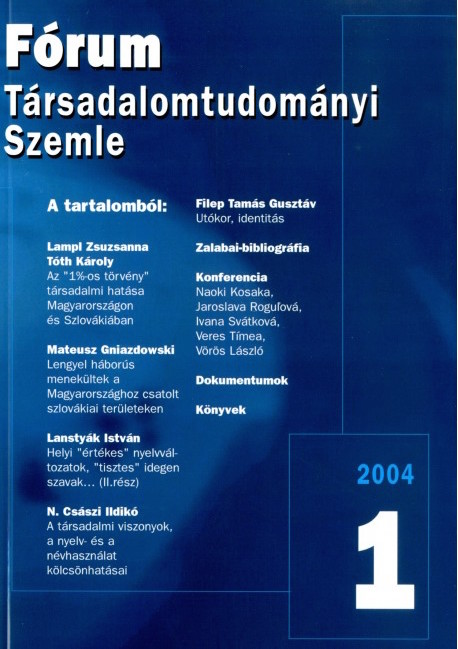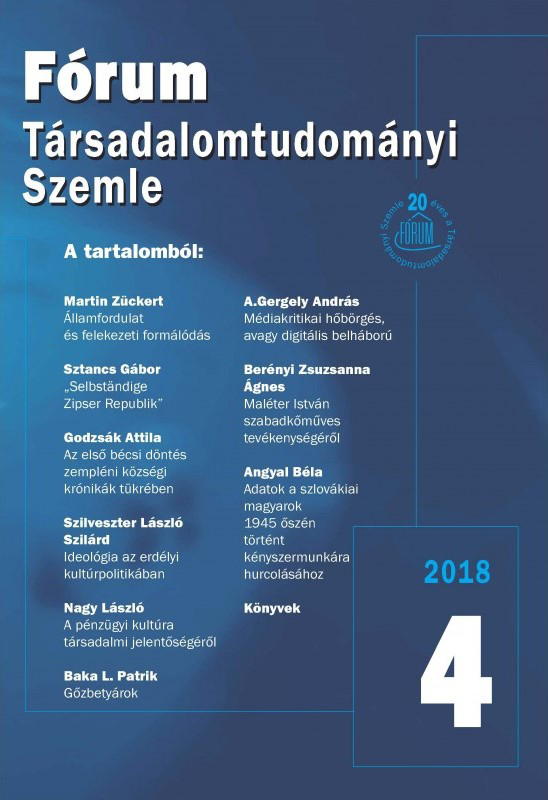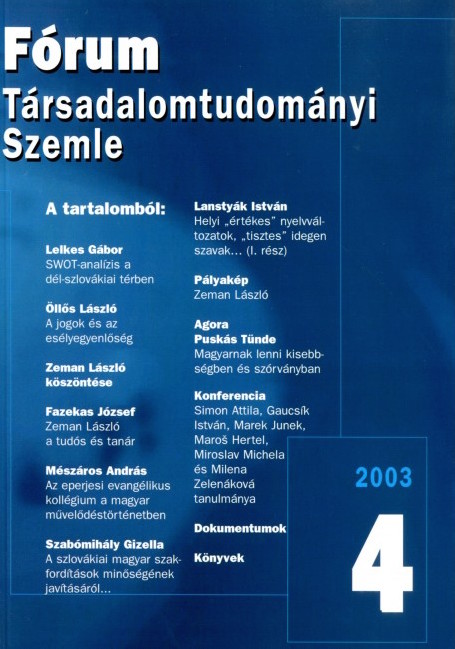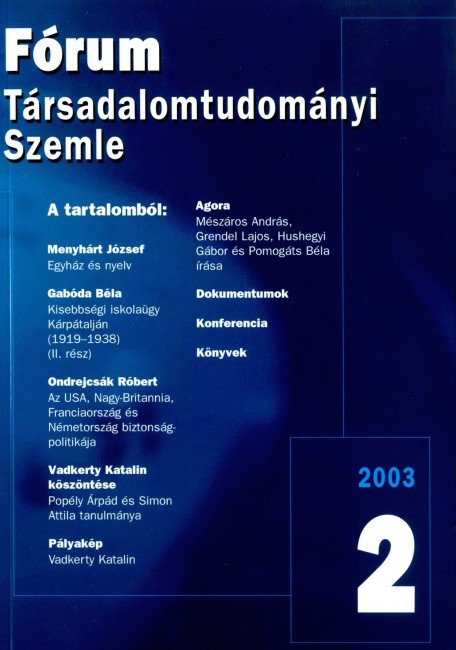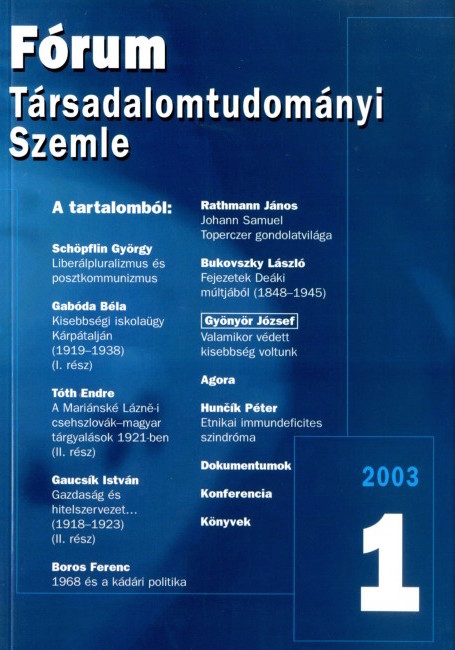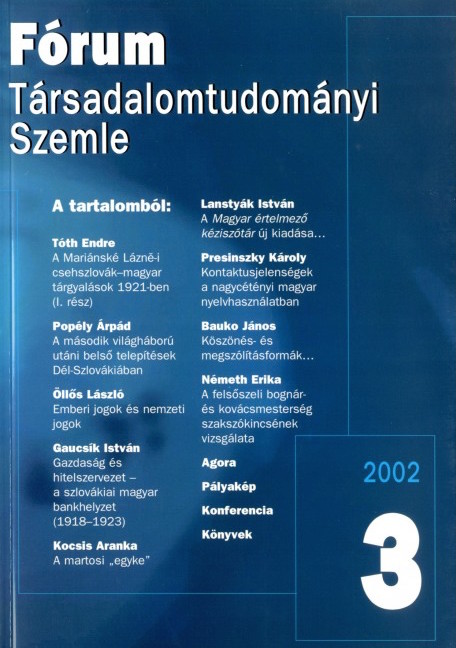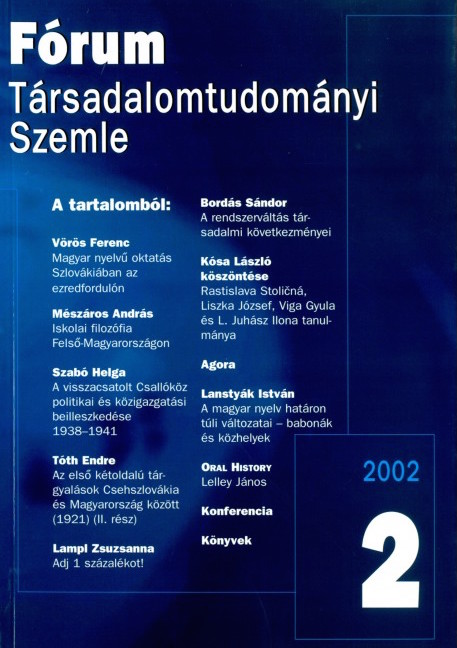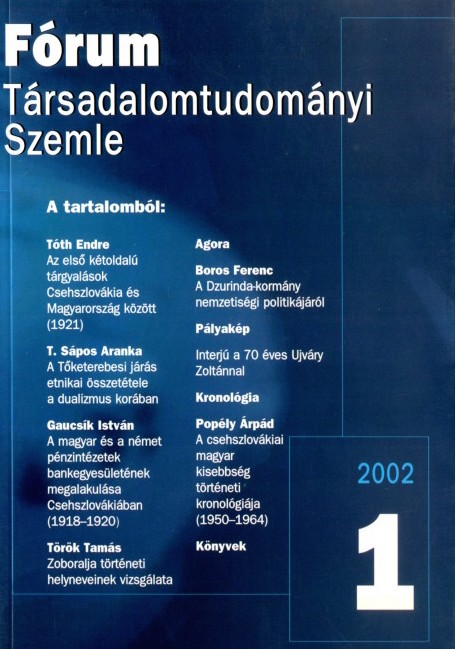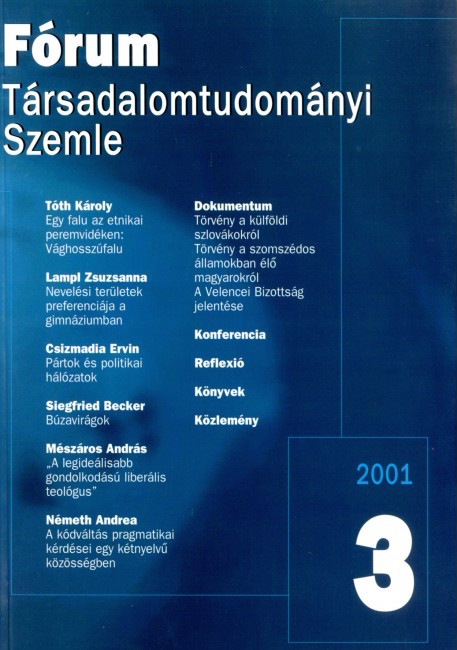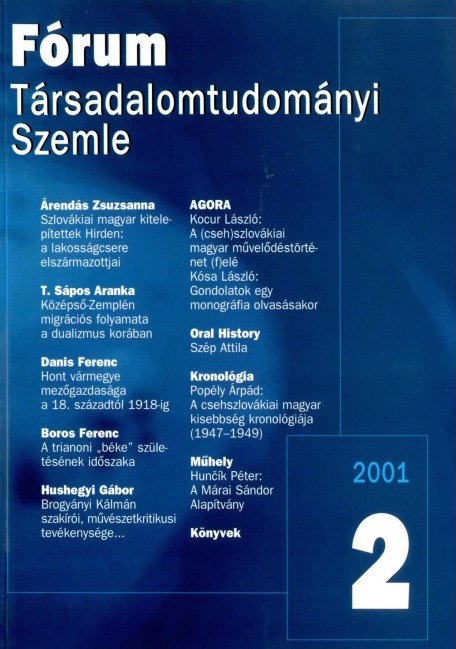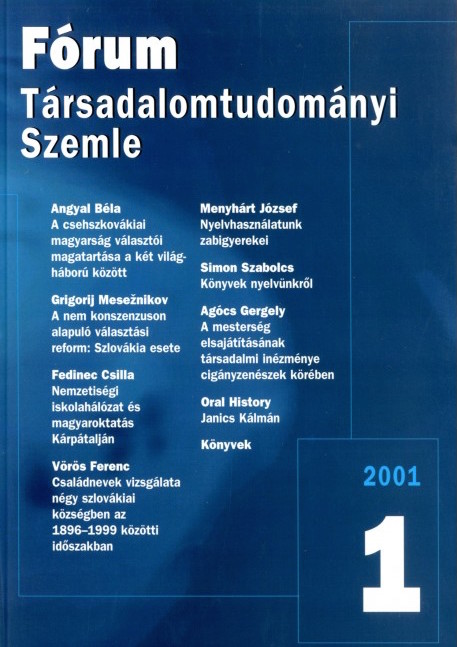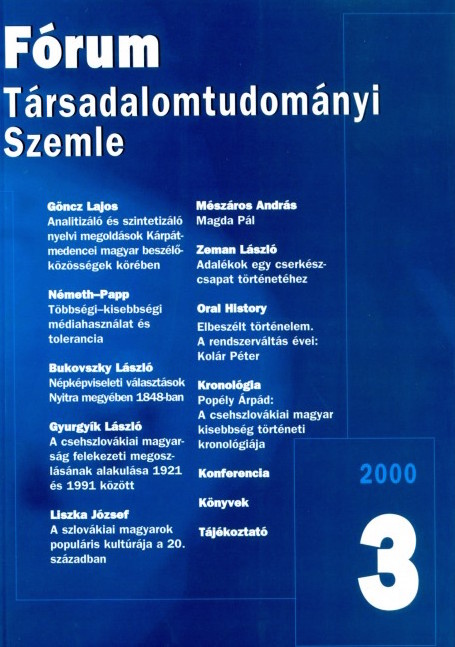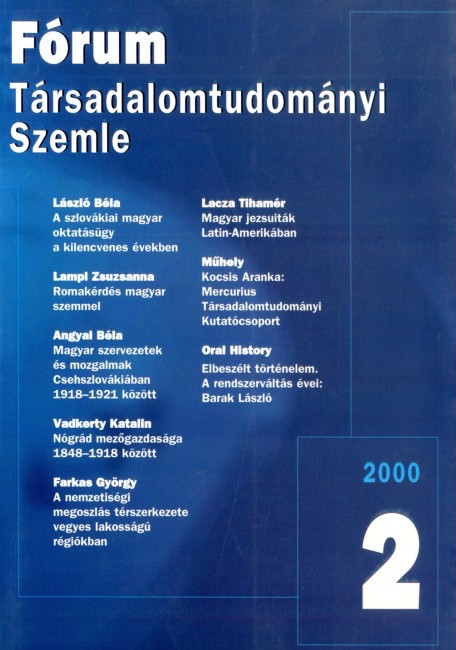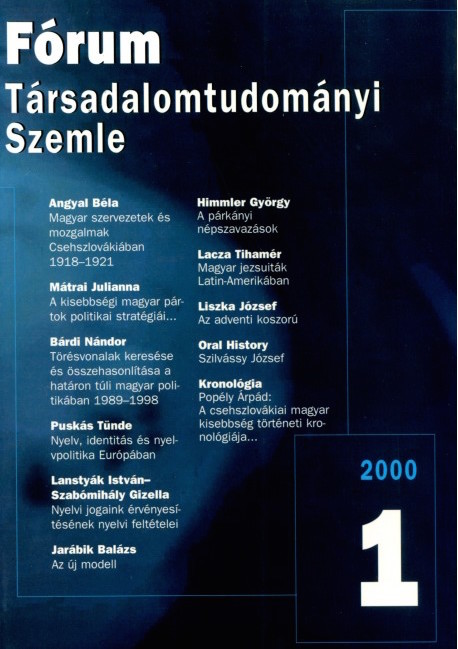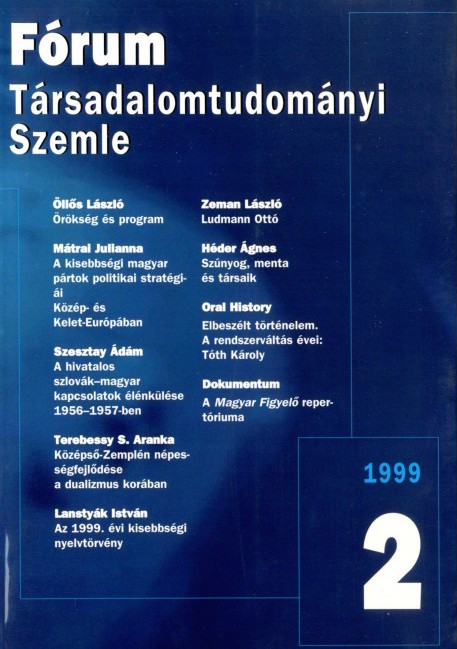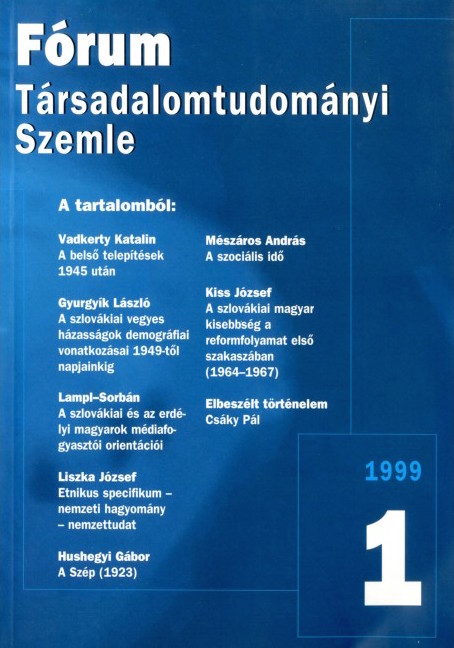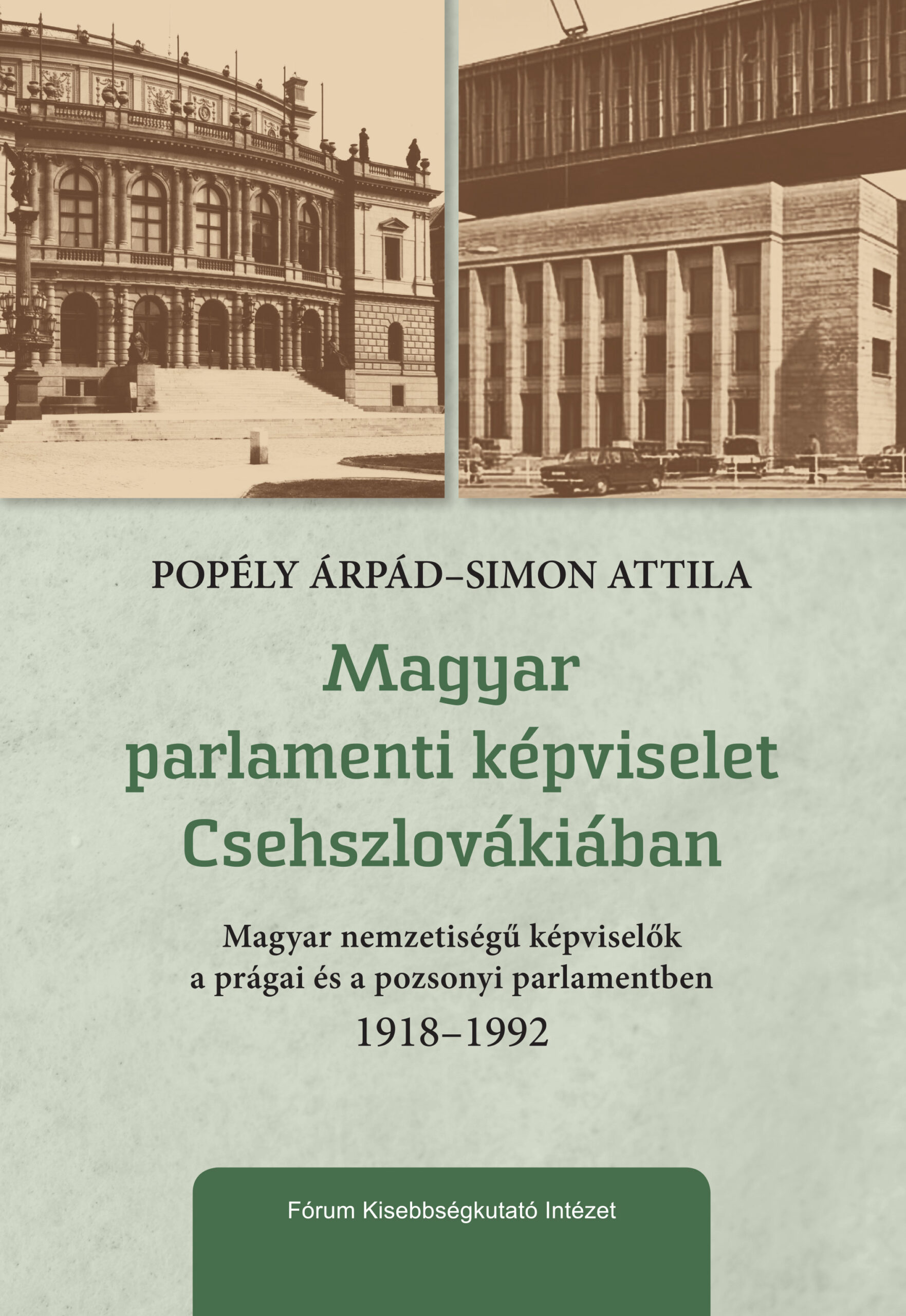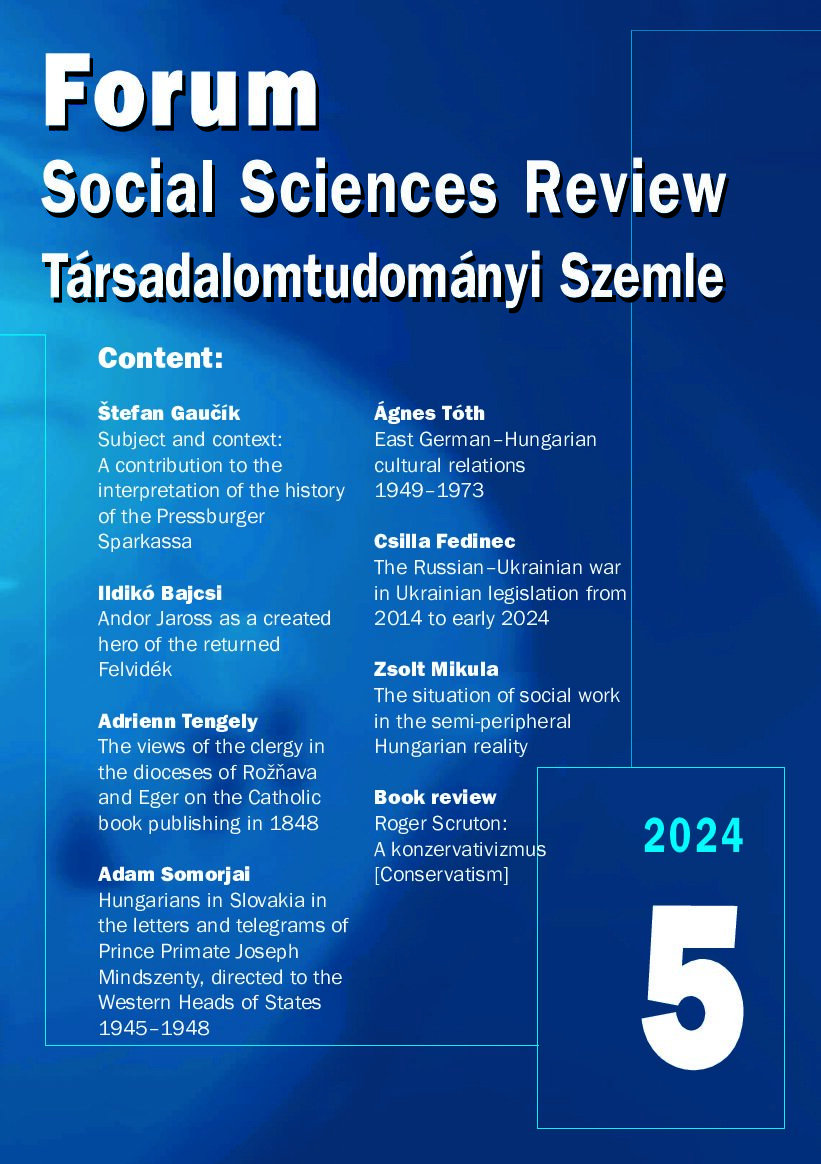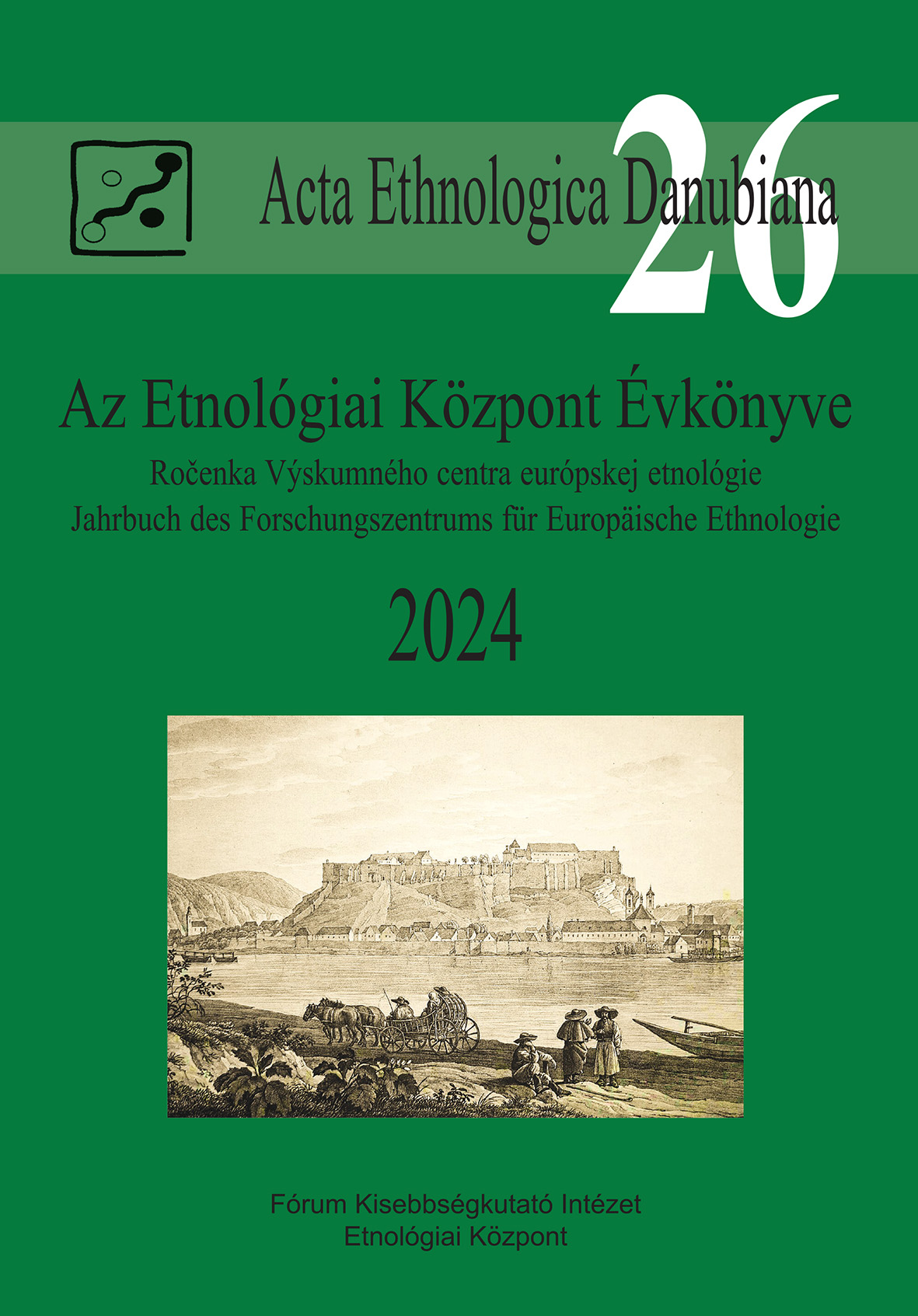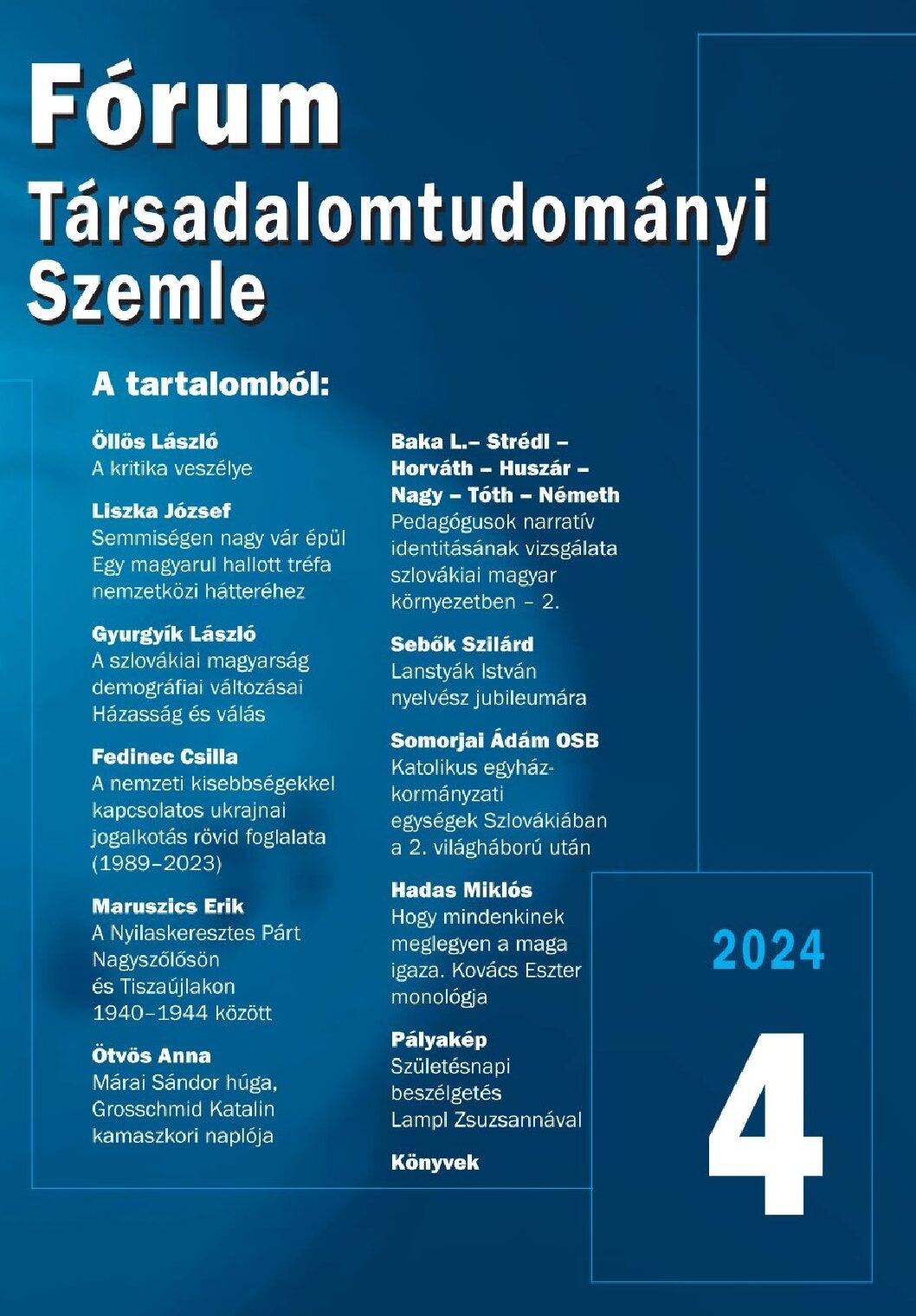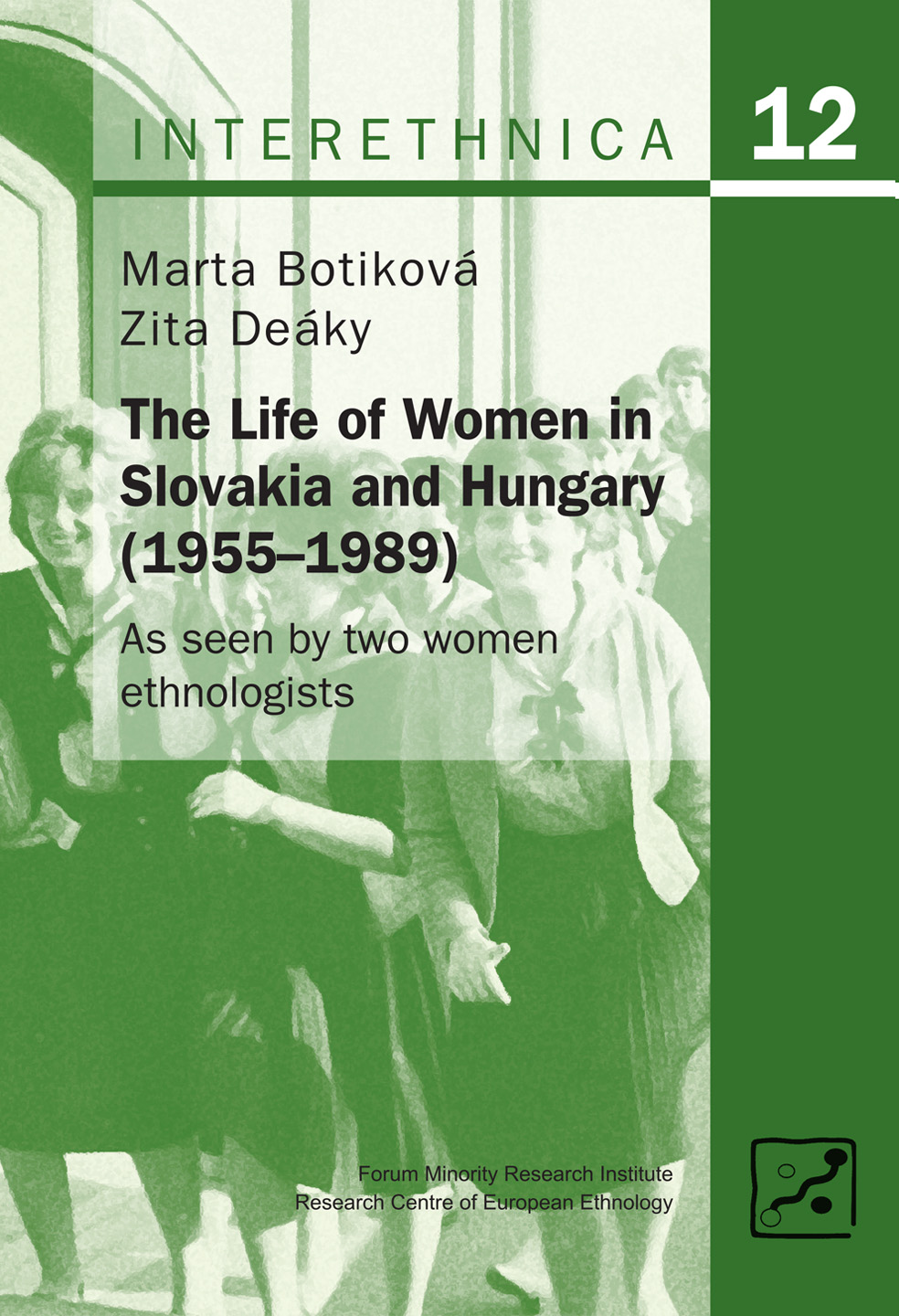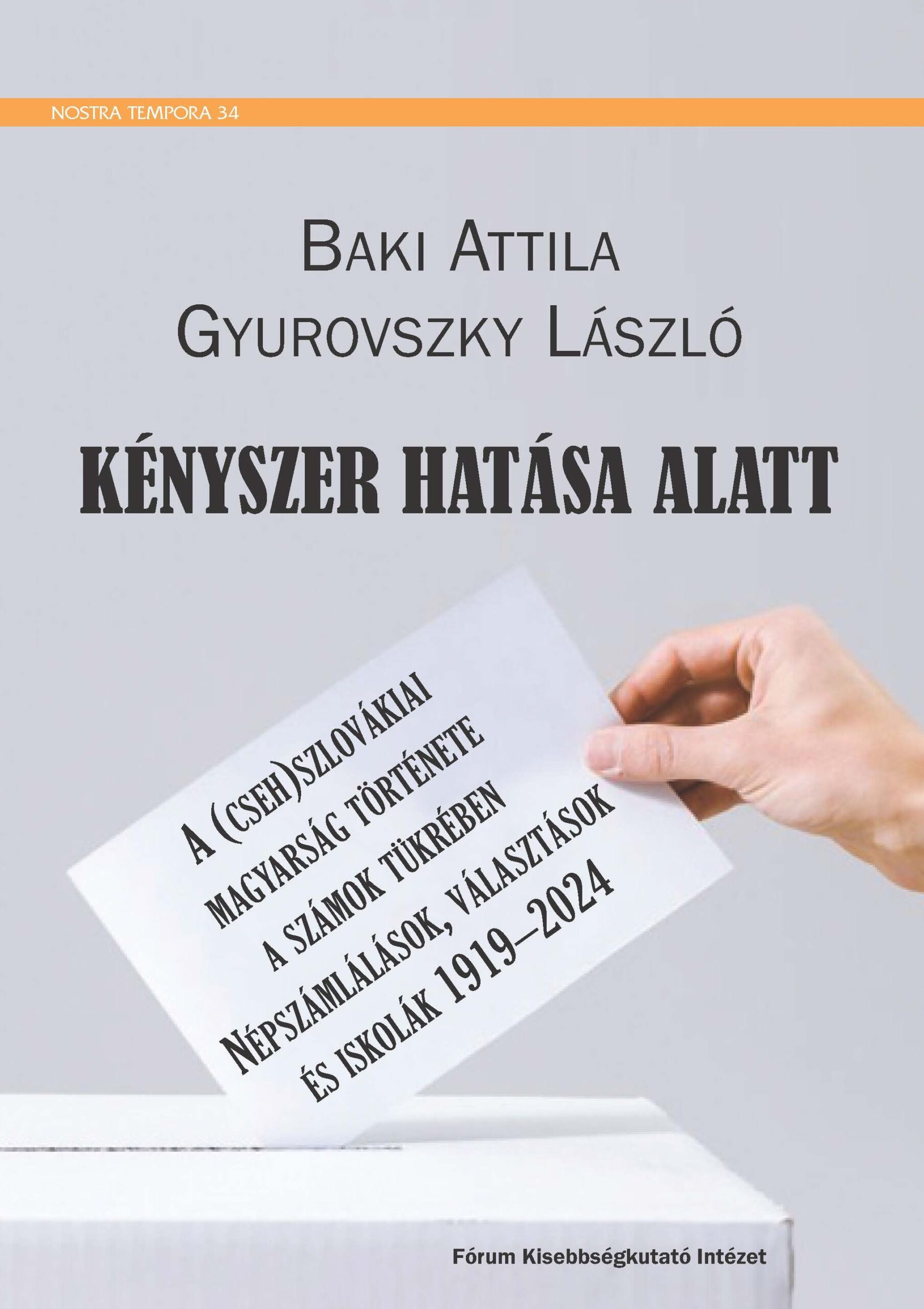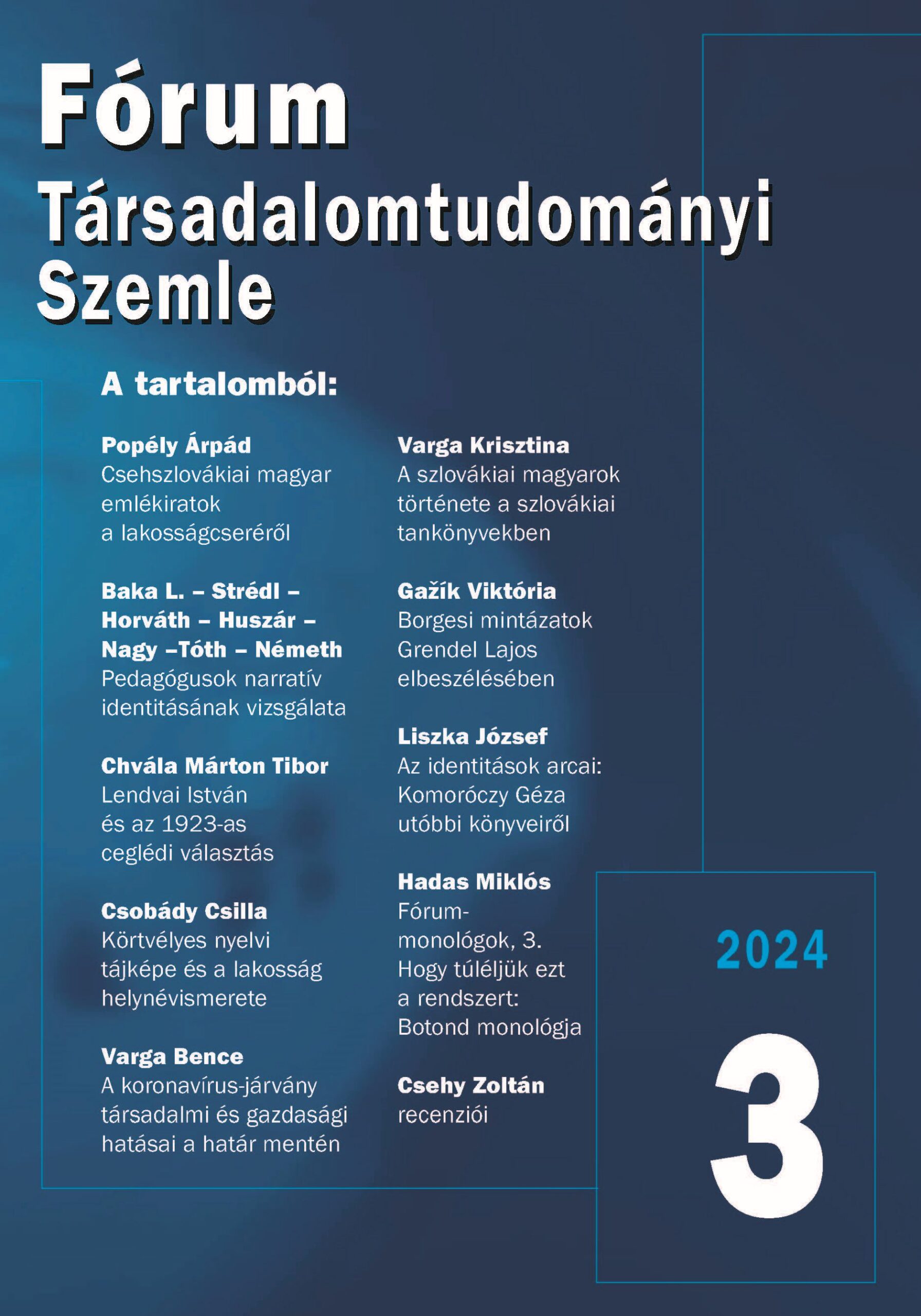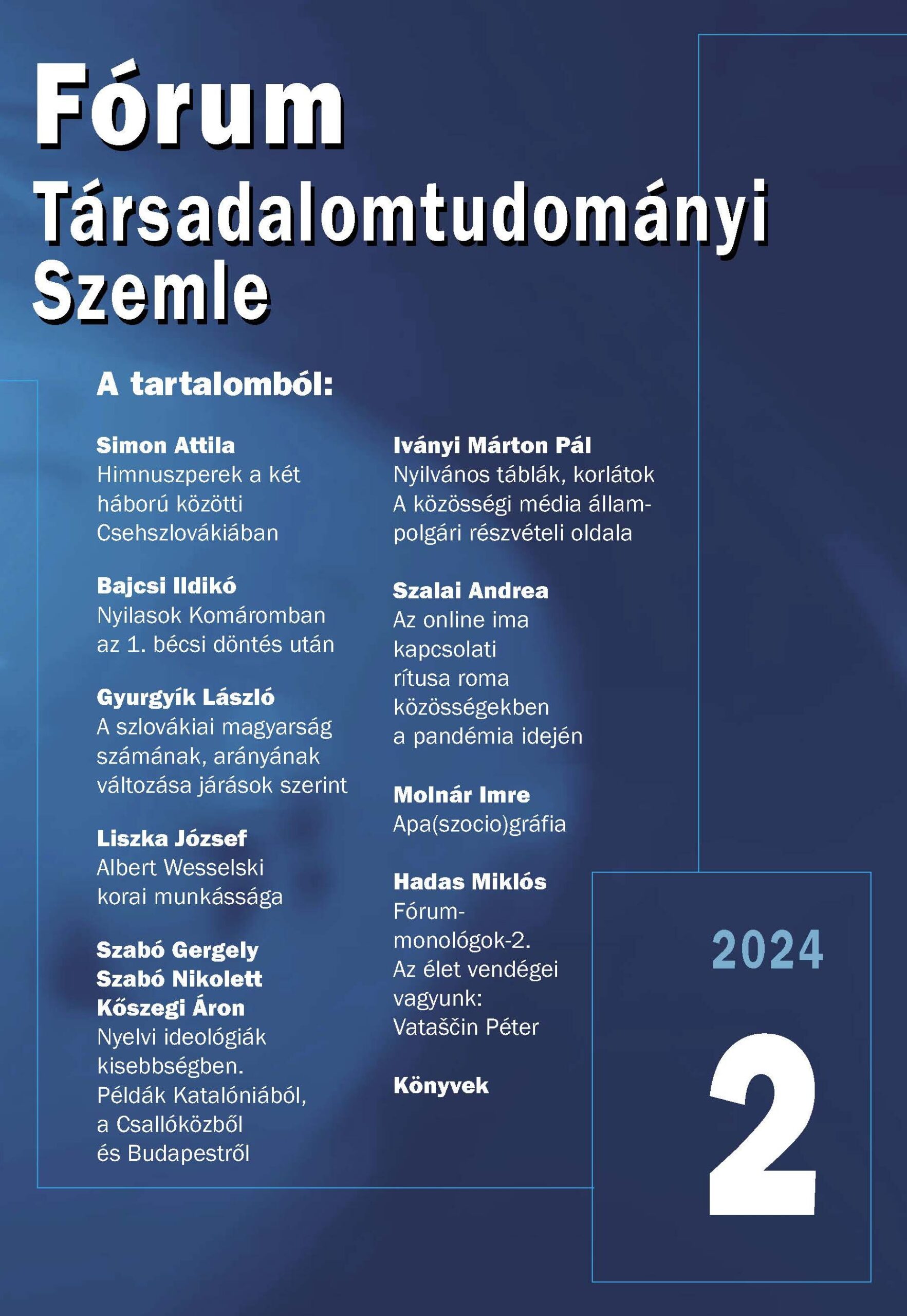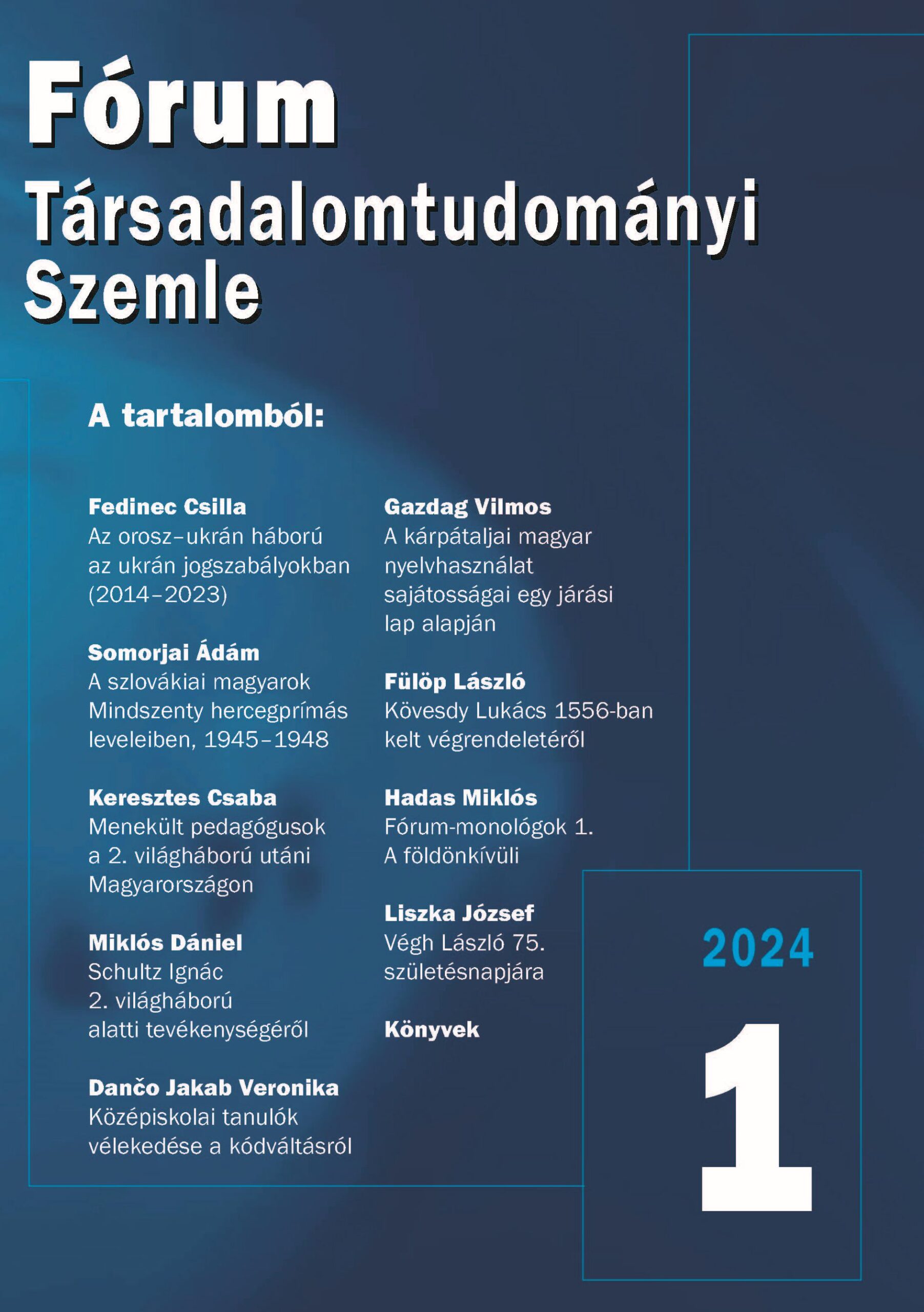Lajos Izsák: The deprivation of rights of the Upper Hungarians and their removal from their native land 1944–1949
Upper Hungary was lived by Hungarians from the 11th century. After the Second World War the Hungarians had to leave that territory, and/or were removed from that territory. According to the census in 1773 during Maria Teresa’s reign the Hungarian territory’s boundary was considered to be in the line of Nyitra-Léva-Losonc-Rimaszombat-Rozsnyó-Jászó. According to the population census in 1910 almost 900 thousand Hungarians lived on the territory that recently belongs to Slovakia. The decades that passed by from that time resulted vast ethnic and language changes as well. The forcible champagne on Hungarian teaching commenced after the change in 1918/19, when the new Czechoslovak state expelled more than 100 thousand Upper Hungarians from its native land. The program for establishing the Czechoslovak national state was completed by Edvard Beneš and the Czechoslovak immigration government in London at the end of 1942, and at the beginning of 1943 it was completed by demanding the expel of the Hungarian nationality population that was accepted in the spring of 1944 by the Czechoslovak communistic emigration together with the Soviet government.
The study introduces and analyses in detail the resolutions against Hungarians that were valid from 1944, the consequences of the Kassa governmental program, the execution of the Beneš Decrees, the work of the Czechoslovak Committee for Resettlement in Hungary, the so-called re-slovakisation, and the decisions of the peace conference in Paris. At the same time the Hungarian political parties, the work of the National Assembly and cardinal Mindszenty József and their steps taken for the Upper Hungarians. Finally, he summarizes in numbers to the end of December 1948, 73 273 Slovak people left Hungary voluntarily, and/or 89 600 Hungarians were deported from Czechoslovakia. Plus another 6000 persons, who officially „voluntarily” left for Hungary, and 20-30 thousand people were expelled, and many thousands came for accomplishing their studies in Hungary and to settle here later. The Hungarians left in Upper Hungary 160 thousand acres of land and 15 700 houses. The Slovaks left here 38 000 acres and 4400 houses. The Upper Hungarians did not receive any compensation.
Gábor Lelkes: The European Parliamentary Elections in Slovakia in 2004
Between 10th – 13th June, 2004 it was the sixth decision made on the composition of the European Parliament (hereinafter referred to as EP), that is the only institution of the European Union of which composition is directly elected by the union’s citizens. At this occasion in May in the European Union that has grown to 25 members, an open opportunity born to almost 338 million electing citizens to decide with their votes that during the following 4 years which representative of political parties will represent their country in the institution that has its seat in Brussels. The EP election in 2004 in Slovakia and in the 9 new European Union member states is of historical character, since in these states the elections were organised for the first time.
The atmosphere before the EP elections in Slovakia was characterised by a general indifference, comparable with the trend in the whole EU, although the election tiredness of Slovak electing citizens was even strengthened by the multiple presidential elections directly before the EP elections. At the European Parliamentary elections held for the first time in Slovakia 17 Slovak political parties were present that had 188 candidates. The Slovak political parties that entered to the EP considered their election results as success and did not pay too much attention to the fact that more than 80% of voters indicated with their absence at the elections that they grew sick of the representatives of the domestic political life. At the EP elections in Slovakia the participation was very low, 19,96% of electing citizens voted, compared to the 45,7%-os average in the Union that is also a negative record in the history of the EU. According to political analysts both the winning and the loosing parties of the EP elections should fast interpret the warning of electing citizens – that stand almost on the edge of apathy – that every fifth Slovak family lives from income at the brim of poverty and these are the social problems where the parties should orient instead of their internal and external fighting.
Attila Simon: „There is a case” Summary on the State of History Teaching at Hungarian Schools in Slovakia on the Basis of Questionnaire Survey
It is a well-known fact that the state and quality of native language teaching is of determining importance from the aspect of the Hungarian minority’s present and future in Slovakia. Not dealing with the problems can be traced back to the lack of long-term development conception of education of Hungarians living in Slovakia, of which drafting could be realised only with the co-operation of professional organisations and politics, as well. Although, the experience of the past show the lack of such discussions.
History teaching at Hungarian schools in Slovakia bears all the illnesses of the domestic education. The crisis of history teaching in Slovakia (in Slovak and Hungarian language) started before the system changes. During the socialism this subject was to become the services of the system. The system changes that took place in (Czecho)slovakia from 1989 put history teaching to an entirely new situation. Renewal of history teaching in Slovakia from contextual point of view went relatively fast and smoothly. The country’s interest on history teaching remained, since the new political leadership wanted to use it for its own legitimization again. Although, the ideological content was changed to international goals.
The study introduces the results of a survey based on questionnaires executed in autumn of 2003. It states that history teaching in Hungarian language schools in Slovakia fights with serious problems. Most of the respondents mentioned as problem the lack of suitable textbooks. This answer alternative was marked by more than two-third of the respondents. The second most frequent marked problem was the lack of qualification of history teachers with Hungarian spirit that was marked by more than half of the respondents. More than half of the pedagogues marked the lack of suitable teaching tools and qualified pedagogues, the rest of the pedagogues thought that the curricula were one of the reasons of the problems. From the given alternatives the less respondents answered the lack of a suitable further education system.
Summarizing the issue of textbooks the most important seems to be the creation of opportunities for choosing textbooks. It should be achieved that the pedagogue and the school through a pedagogical program would choose the textbooks to be used and of course that there would be an opportunity to choose. Besides the liberalization of the textbook market its professional control is also very important, to enable our children to get to books that reflect the acceptance and the valuation of tolerance, all kind of difference (national, religious, etc.).
At our schools teach history pedagogues over and under forty years of age in the same extent. Although, our schools are lacking in qualified young people. In the group of teachers younger than 40 the rate of unqualified people is low. And this again stems from the low financial and moral valuation of teachers – the unsolved problem of teacher education. In Bratislava and Nitra more than a dozen history teachers accomplish their studies. Although many of them does not work in this field.
József Kiss: Slovakia’s Place and Role in Milan Hodža’s Geopolitical Conception (2. part)
Hodža’s draft draws the attention to the connection between his geopolitical conceptions and foreign policy directions, and also to the ambivalent character of his ideas. He gives evidence of those difficulties that arose during the implementation of the complexly interpreted geopolitical conception to the foreign policy direction that extended to the economic and social, cultural and civilisational sphere. Hodža during the introduction of the “Duna-plan” in efforts of taking it into real framework and during political temporizing he did not forget the motives in connection with Russia and arising from the necessity and function of joining, resulting from middle-European aspirations of Germany that had grown to threats. Hodža, to the contrary to Beneš, intended to drop the importance of Czechoslovak–Soviet co-operation agreements and to maintain the independence of Middle-Europe that was threatened by the agressive acts of Germany and to maintain the distance with the activities of the Soviet Union, while it wanted to find compromise with Germany. Apparently, Hodžának had no illusions in connection with Germany’s aggressive intents.
In this Hodža’s attitute taking into consideration of those geopolitical abilities was present that resulted that his conceptions did not loose their timelyness under the recent conditions of the process of getting united in Europe.
Coordinates of Slovakia’s placement in Hodža’s geopolitical conception evidence efforts of creating syncretical equalization between catching connectivities and political expediency, and the dynamism functioning with signs of permanent approrism and appropriatness, connecting susceptibility, the ability to discover with imagination, racionalism with abstractness. Hodža’s geopolitical conception intended to put Slovakia into international thinking.
Davide Torsello: Trust, Distrust and Social Relations at an East Slovakian Village
Trust and distrust seem to be important concepts when we describe how individuals structuralise their acts, and/or how they report with other people their ideas on social reality. Trust that creates a relation based on reliance between parties that share a common goal, holds the emphasis on interests and instrumentalism and an array of mutual expectations and responsibilities from both sides. These are defined on the basis of the principles and rules of the community. Deep distrust to individuals and institutions is one of the reactions produced by individuals by which the village people react on the situation of poverty and economic penury during their everyday life. In every detail of the social life of individuals trust is in stake, since due to the lack of economic sources the individuals see the opportunity to survive in social interaction. In such conditions there is no place to practice the „blind“ and absolute trust, since (the social and economic) goods are lacking from the life of individuals. At the same time distrust results responsibility in the players of the interaction that is seen not in apathy and passivity, but in one active mode of living in general conditions of distrust and lack.
The inhabitants of Krá¾ová nad Váhom consider the importance of social relations as the adaptation strategy to big historical changes. How could the existence of dominant expressed distrust be understood in the community? In instrumental conception in case of need family members are potentially the most profitable sources of help. Since family relations are always „blood relations“. Although, on the other hand, strong emphasis on family relations has also negative sides. The petrified etiquette of behaving and maintaining tiresome social relations can lead to the accumulation of negative emotions that can threaten the sensitive system of family relations.
Relations out of family and within a village are characterised by different social aspects: these are not so long-term than the relations within family. People can use instrumental trust on different levels depending on how much time (and power) is invested to the relationship. Although, on the other hand even if the emotional load is easier in relations outside the family than in the relations within the family, capriciousness of relations outside the family is stronger. Hence, with the growth of distance between the individuals the cognitive map of trust becomes more complex. At this point the usage of distrust can become of strategic importance and the expressed distrust between the village habitants does not reflect the lack of forms of associations or civil collective actions, as some of the theories seem to declare.
Using distrust is expressing tense that is present between different layers on which trust is based and with the help of which it is maintained. By using direct distrust village people are able to create balance between following personal interests and the construction of social and cognitive trust. Hence, distrust becomes the supplement of trust and at the same time the tool for creating attachment between the people in uncertain times.
Valér Veres: Future Plans in the Circle of the Hungarian Minority Youth and the Majority Youth in the Context of Social and Origin Background
Future planning of the Hungarian minority youth and the majority living in the Carpathian Basin is on the one hand determined by the region’s general social and economic state, and on the other hand by the situation of the social layer within the region. In the circle of those young people who live in better conditions in the regions – either the Hungarian minority or the majority – signs of the lengthening of youth life period, lengthening of life period at schools and the expansion of education is visible. These changes promote the expansion of post-material values that form the background of the second demographic transition of a Van de Kaa-type. These results confirm that statement that the East-Middle-European changes in having a baby and postponing the time for family planning and getting married are present not mainly in the regions that are in disadvantageous situation after the system changes, but on the contrary, in more advantageous regions (our examples are mainly the young people from the majority in East Slovakia, from which many live in the prosperous Bratislava).
The social and origin background within the regions also very significantly articulates future strategies. Mainly in the urbanised regions – like Belső-Erdély, Felvidék and Vajdaság – significant differentiation by social background can be seen. To the future plans we assigned youth groups having special social profile that to a certain extent harmonize with the class specific habits of Zinnecker-type and youth ideology. Young people with better economic and cultural background, the „elite“ chose enterprising characteristic of economic class fraction, and the cultural class fraction chose further study or more abstract, independent way of life that is one of the signs of becoming independent in young life, and as such is the expression of the process of youth period changes. These changes are present in Székelyföld and Kárpátalja even less slightly, but in the circle of young people in towns its signs are visible.
Intention to work abroad in Erdély are significantly strong, of which main reason is that the most part of young people is beside the change of attitudes in connection with the expansion of education and family planning is forced to realise its future plans that are compared with the opportunities „demanding“ abroad. This forcing power is seen in every region, but in different extent and forces the young people of majority and the local Hungarian young people to emigrate in the same extent. Although the opportunities to work abroad in the neighbouring Hungary are more realisable for the Hungarian young people, therefore following the recent trends, there are more Hungarians who emigrate.



